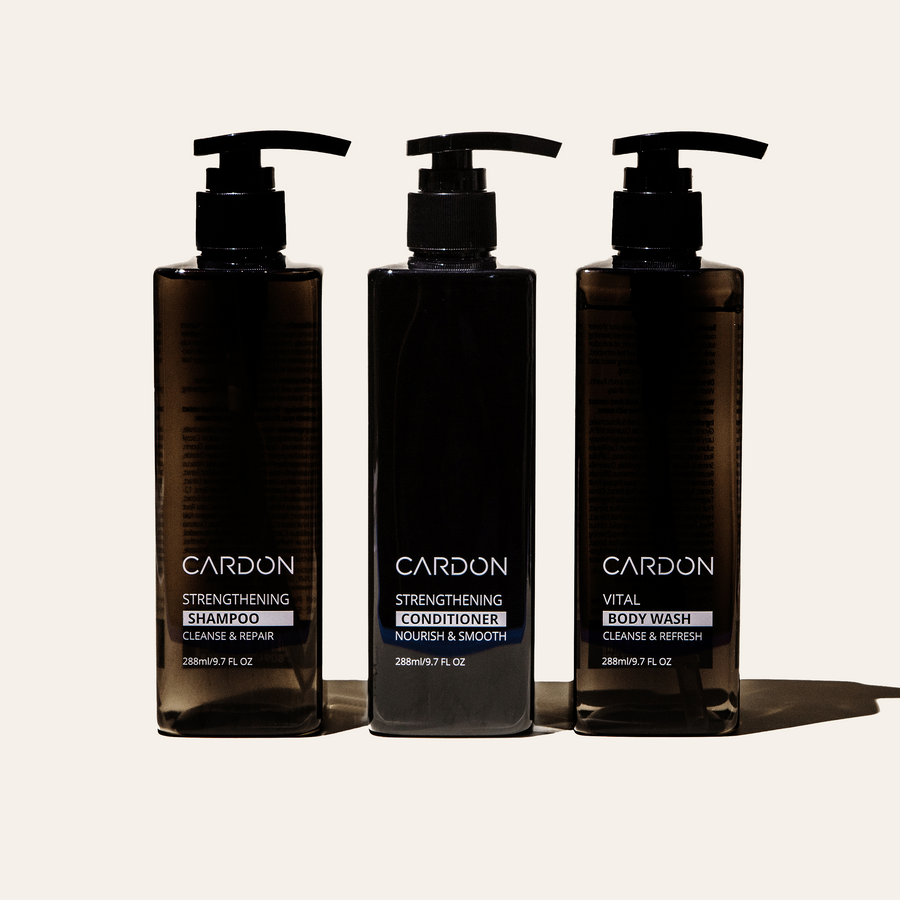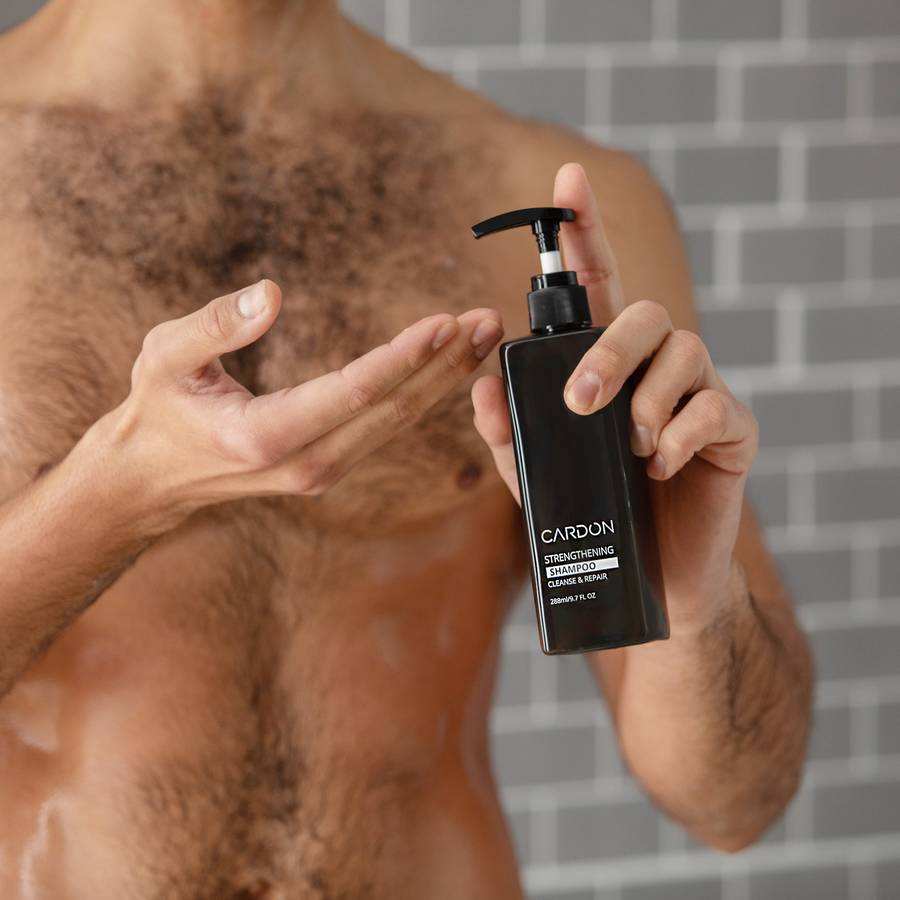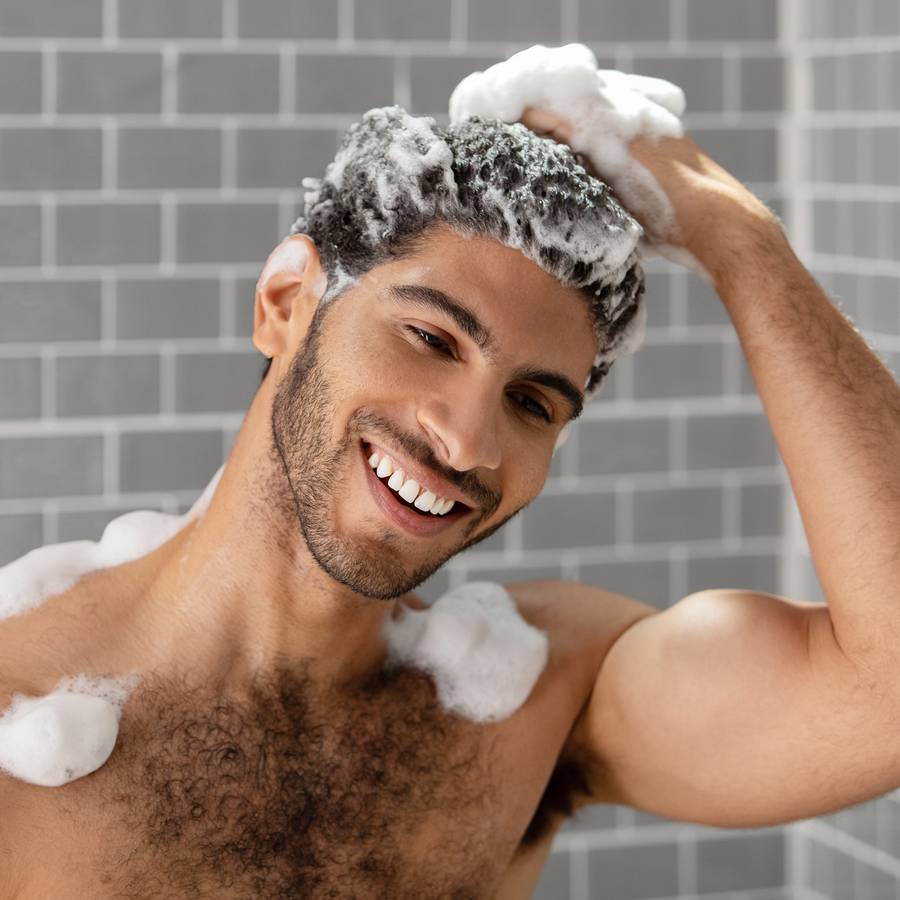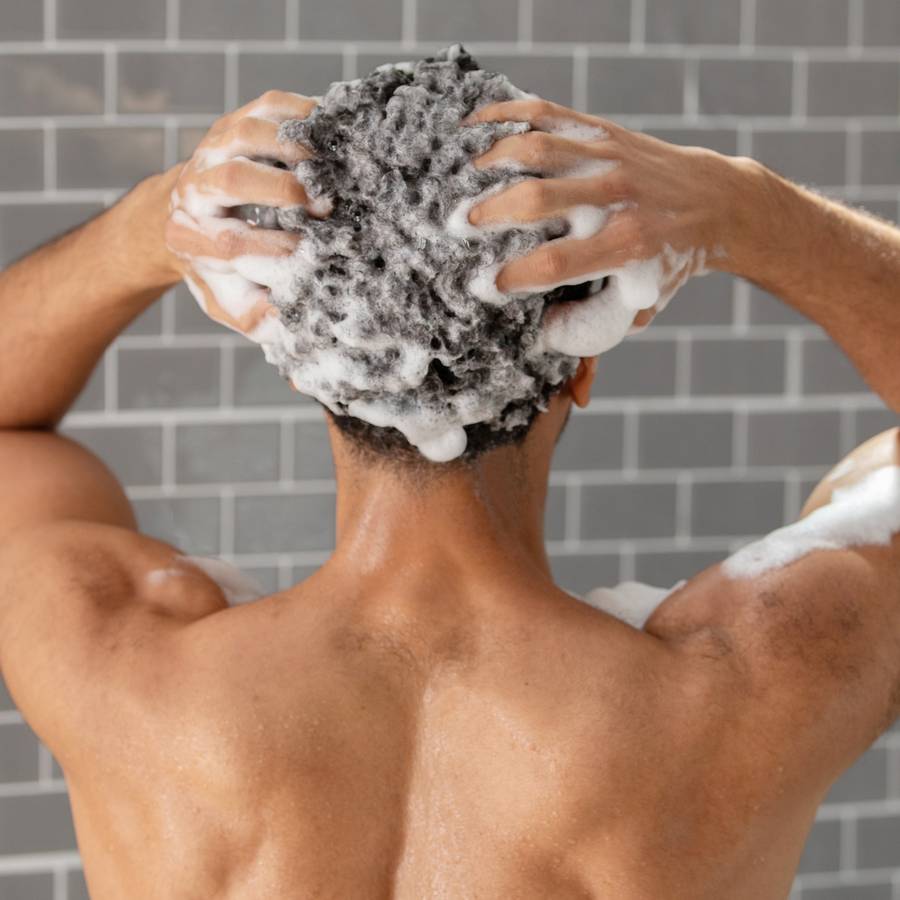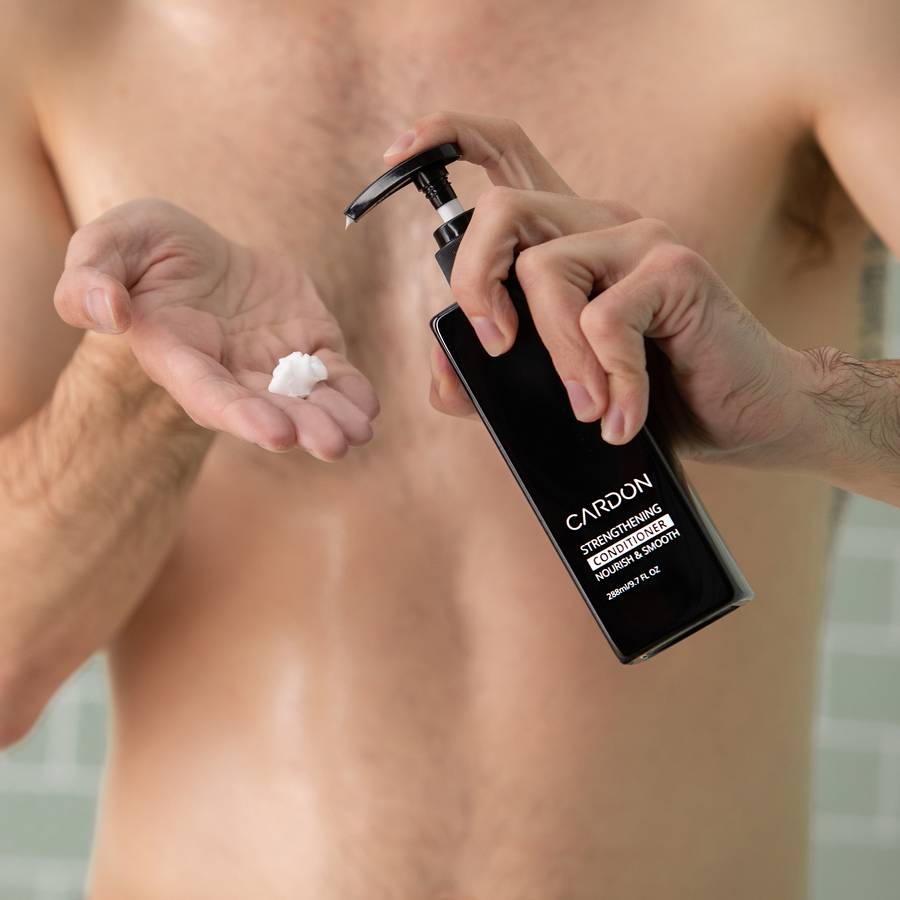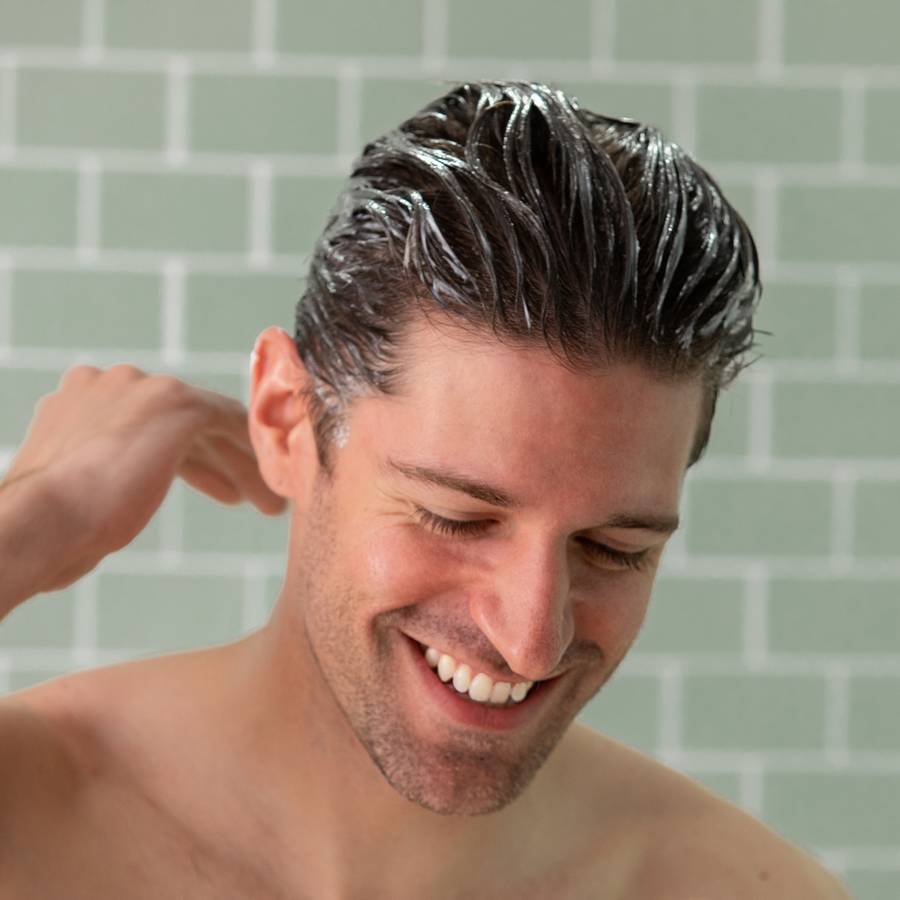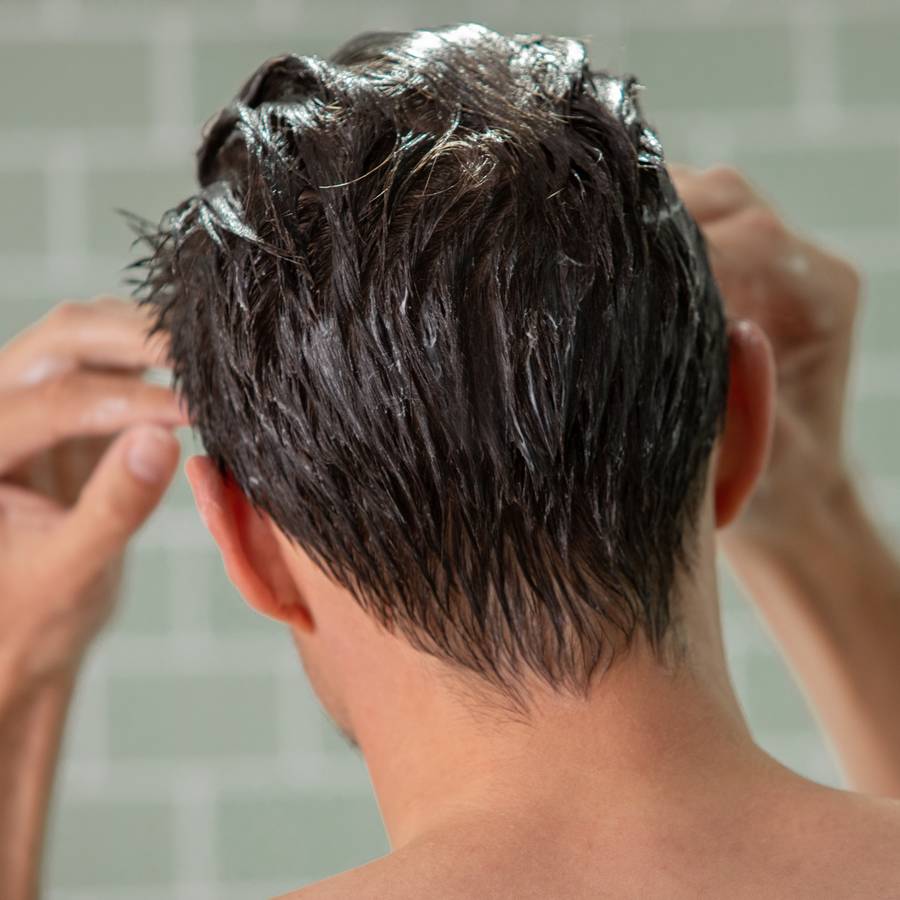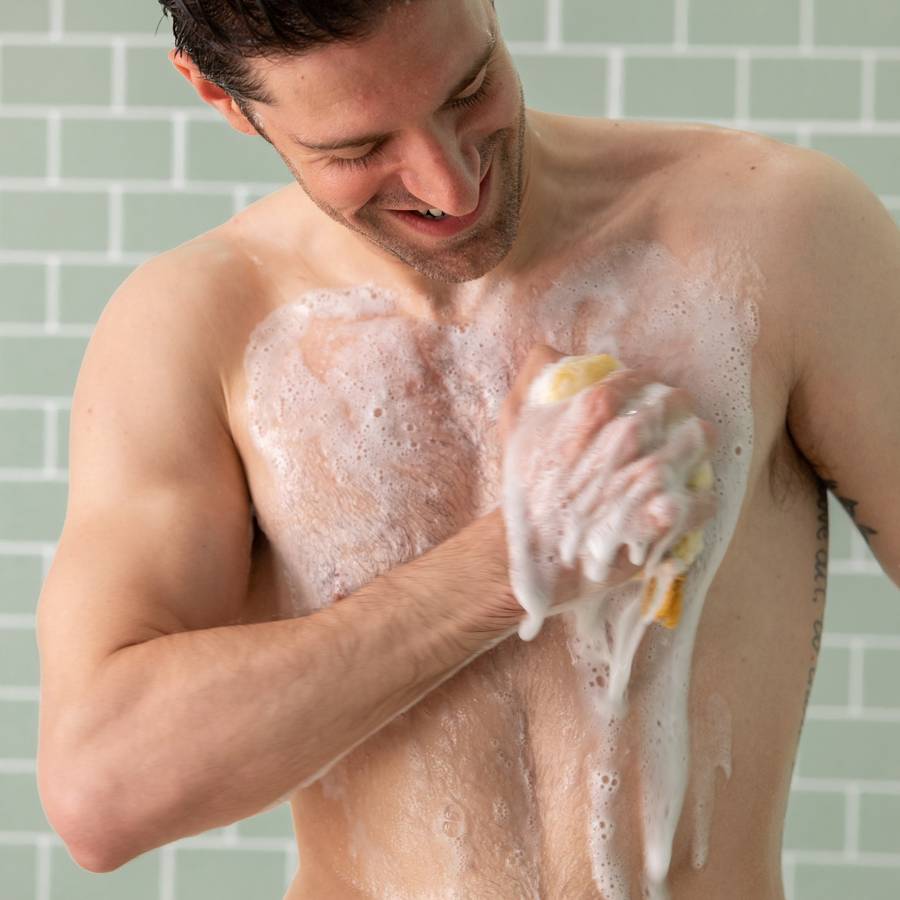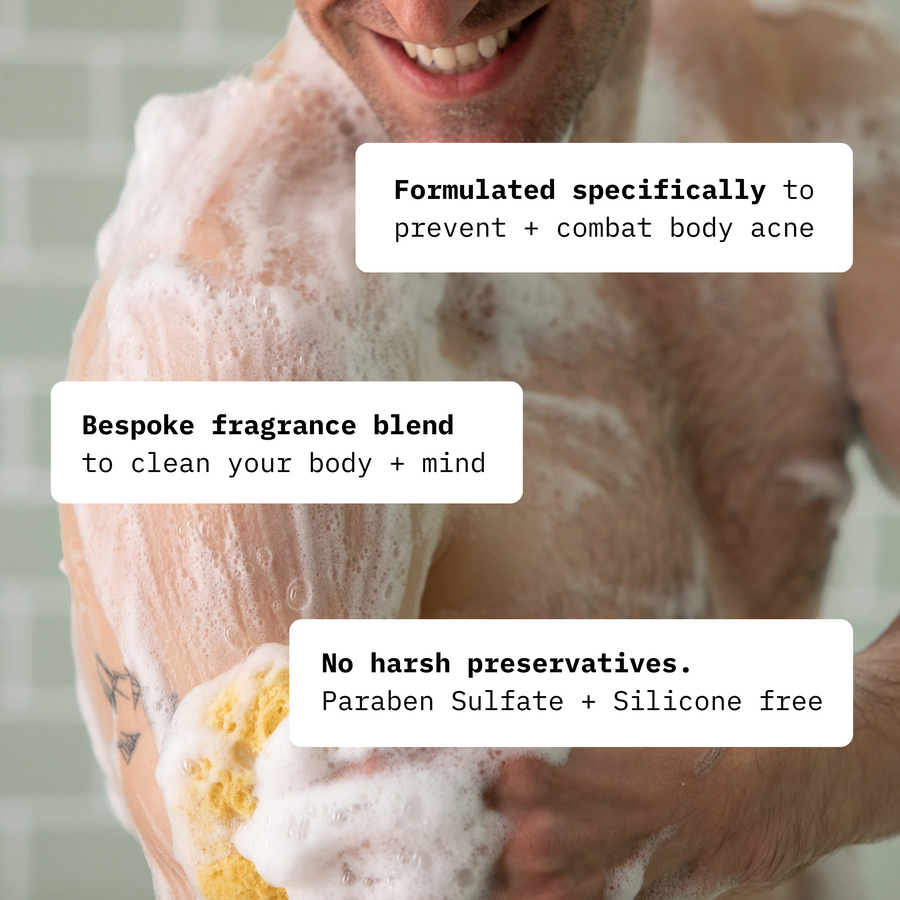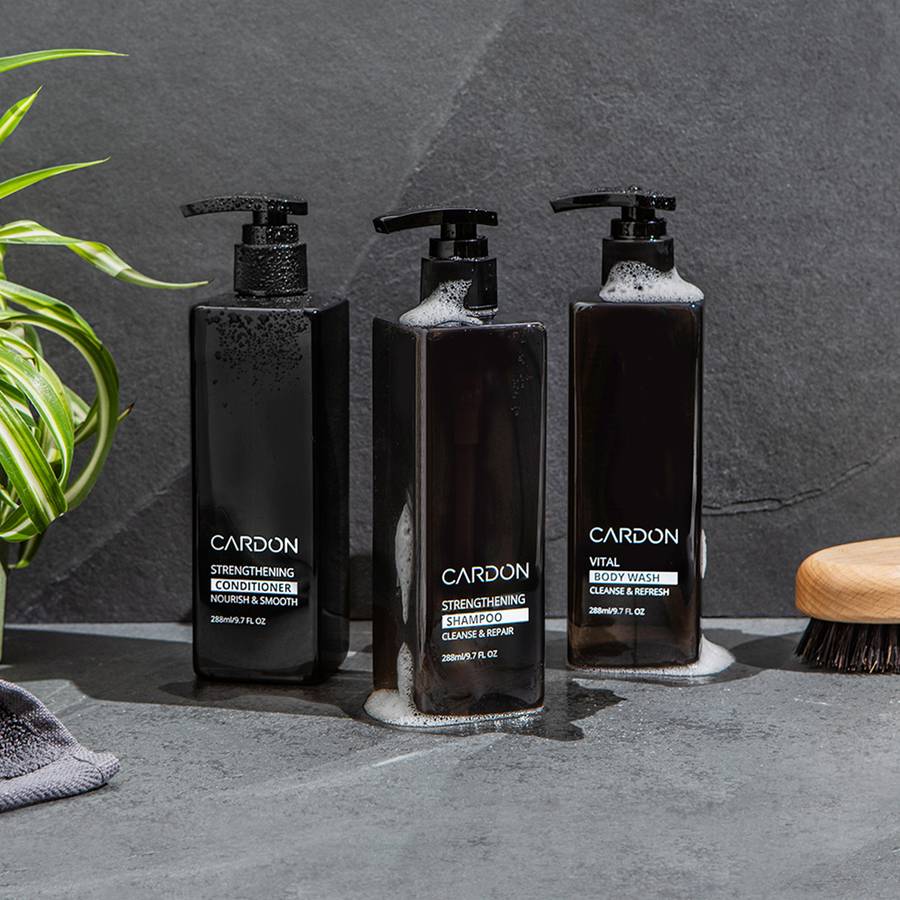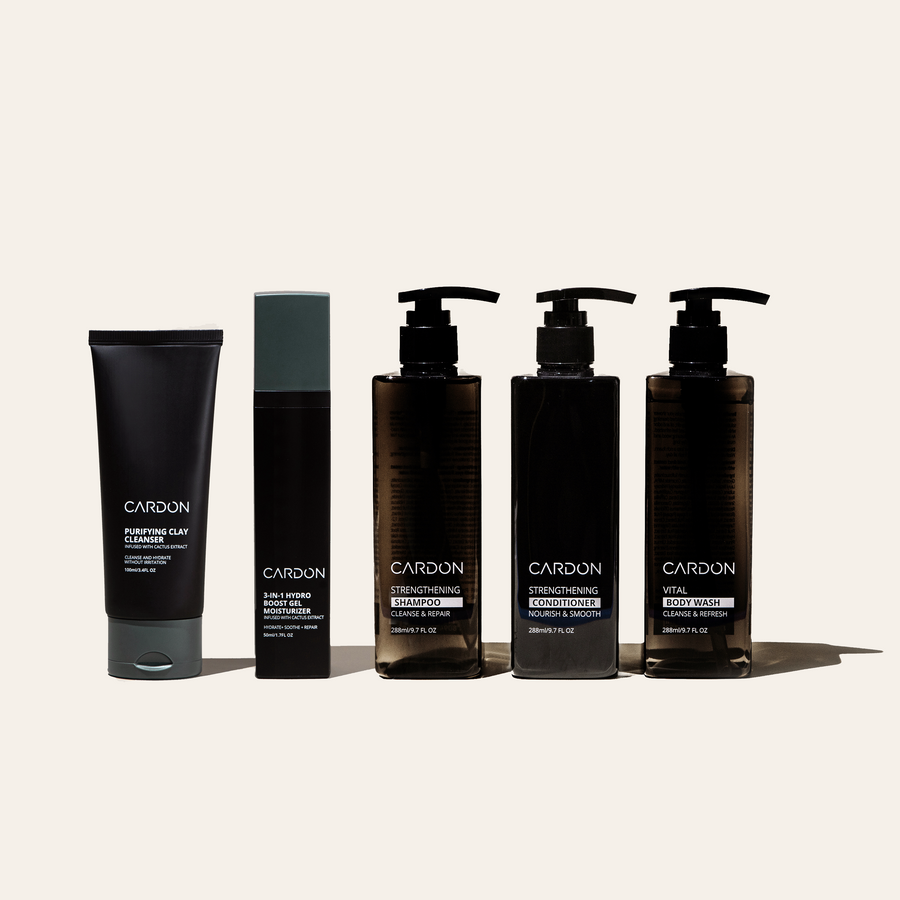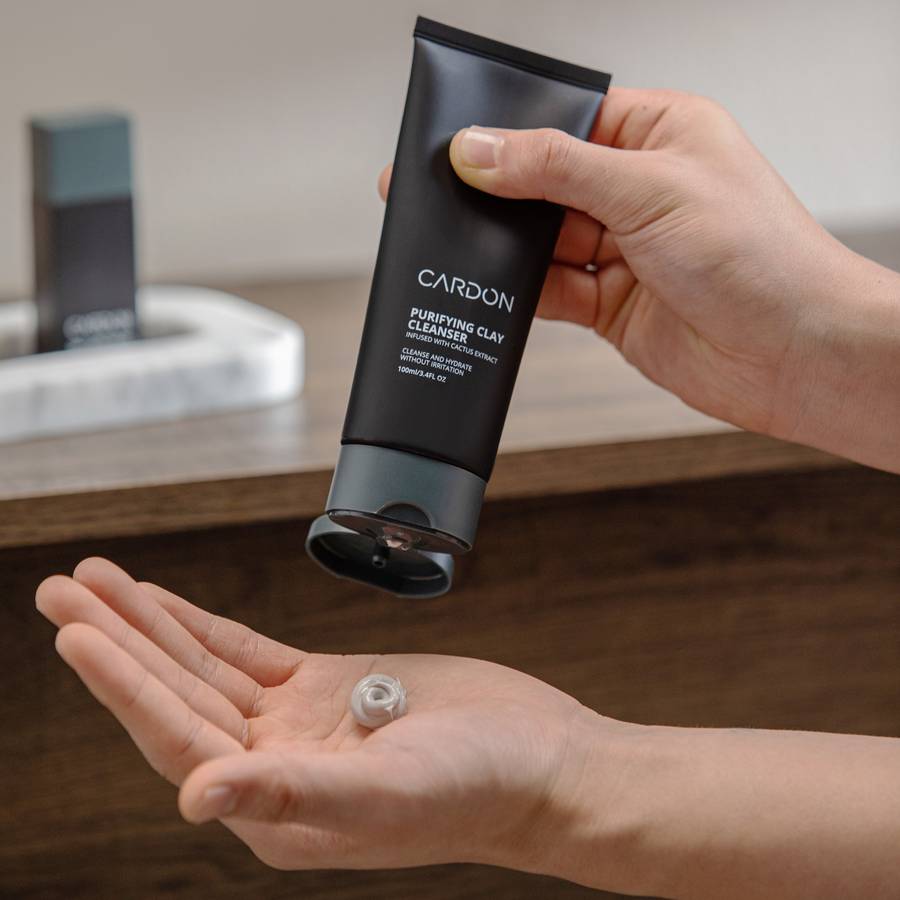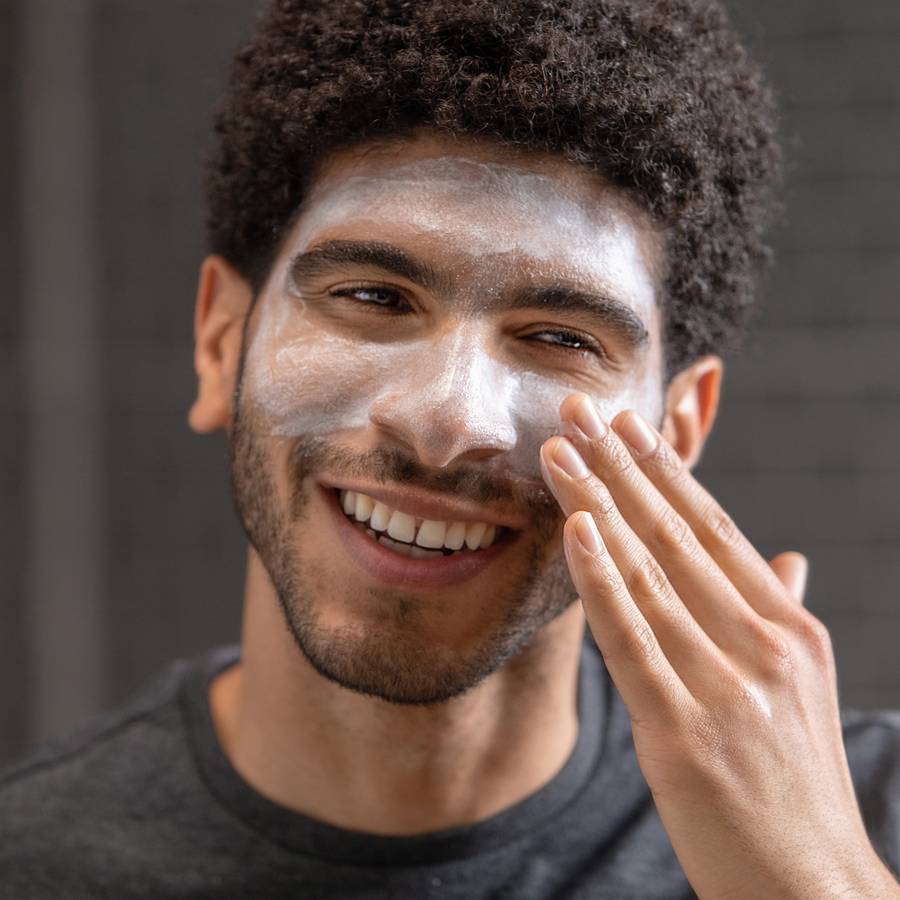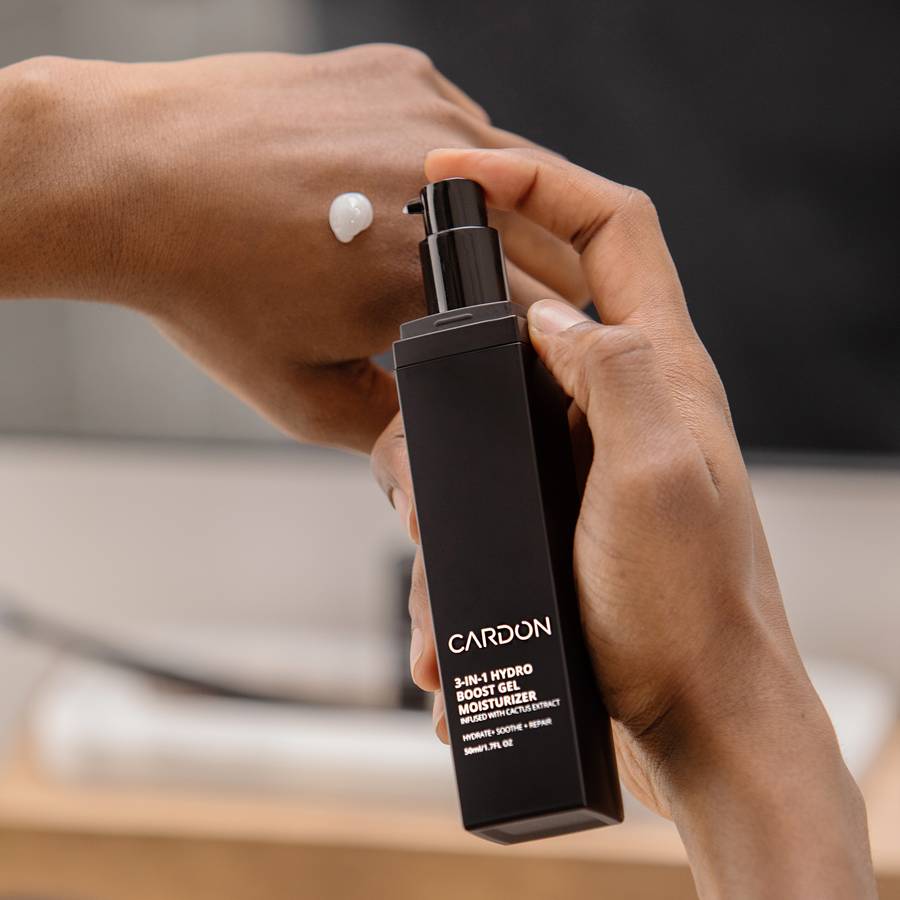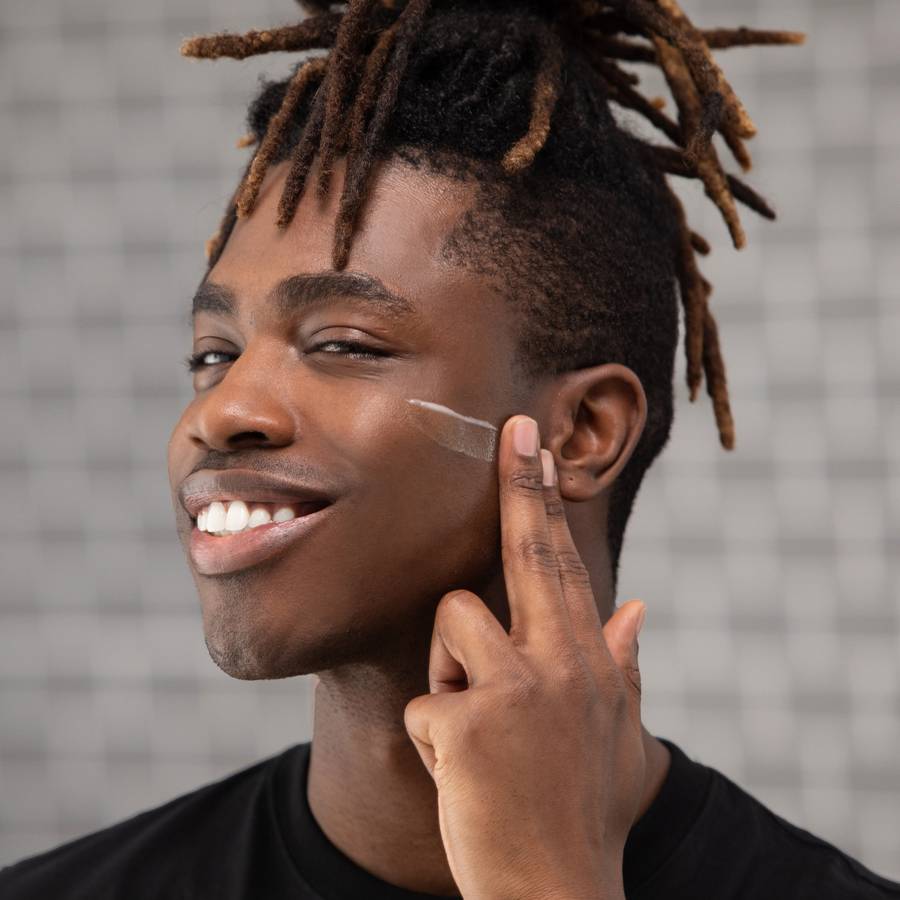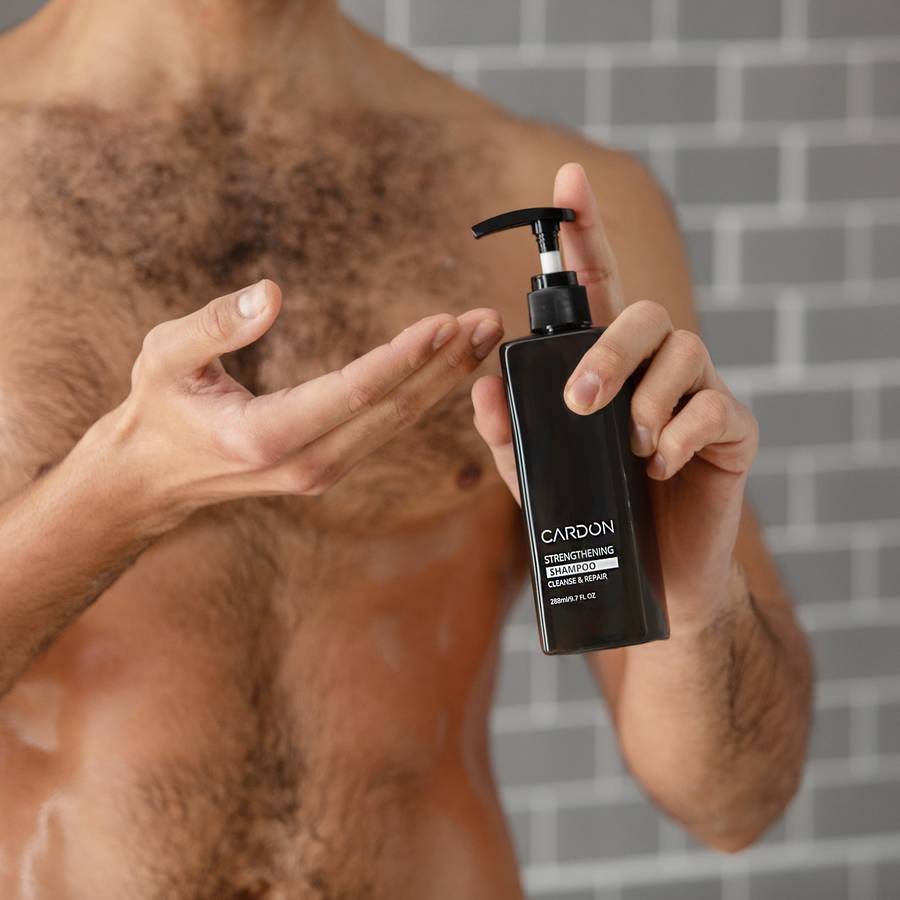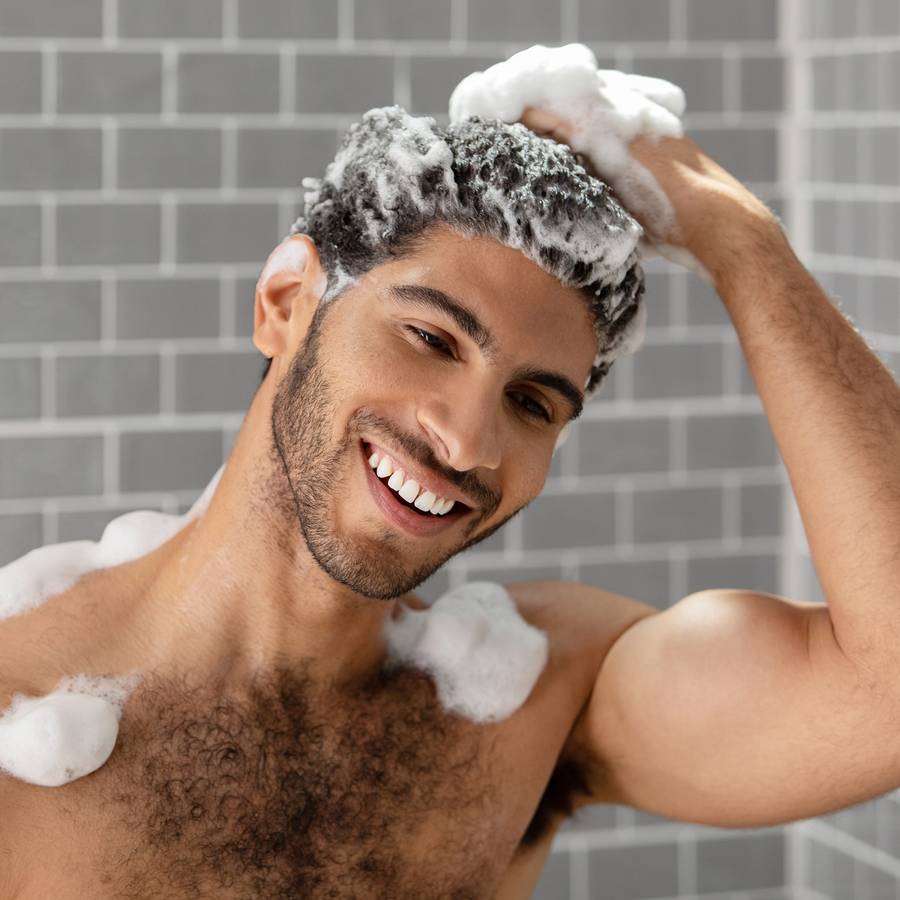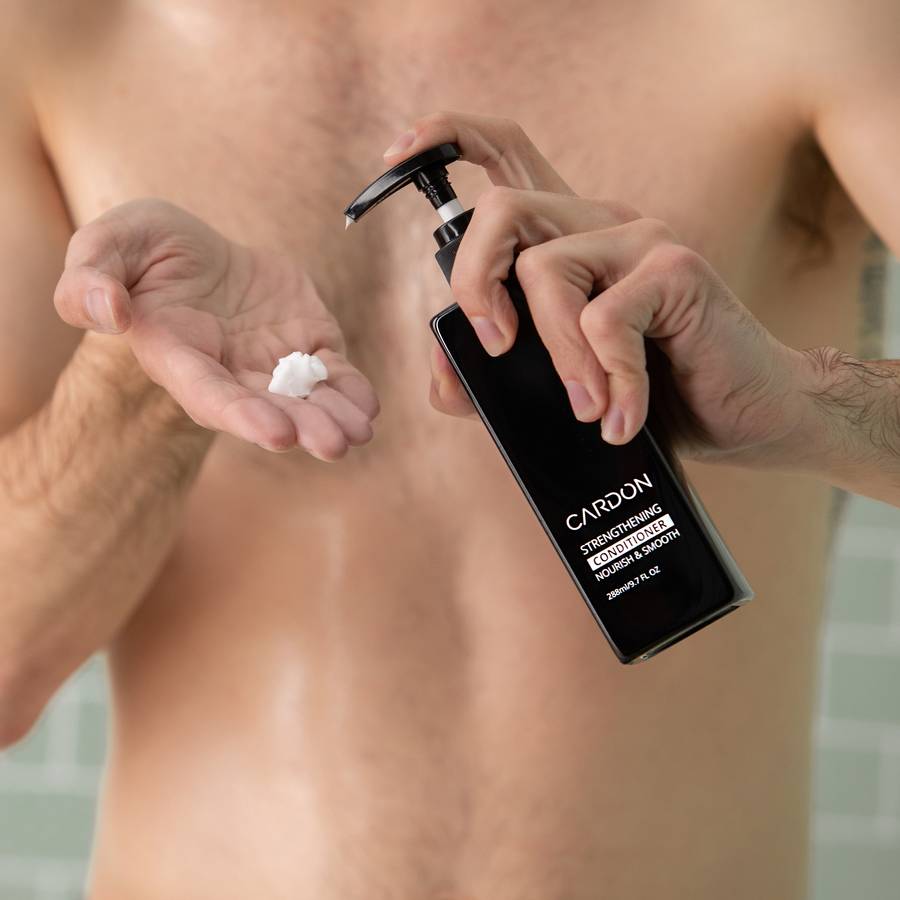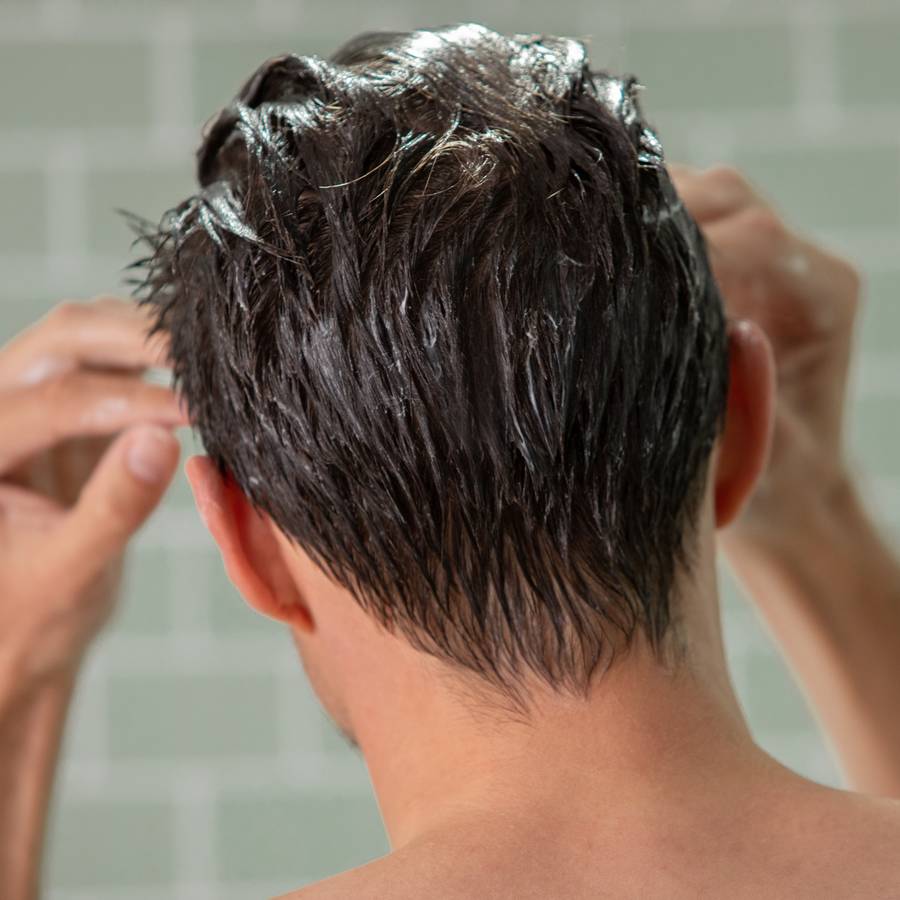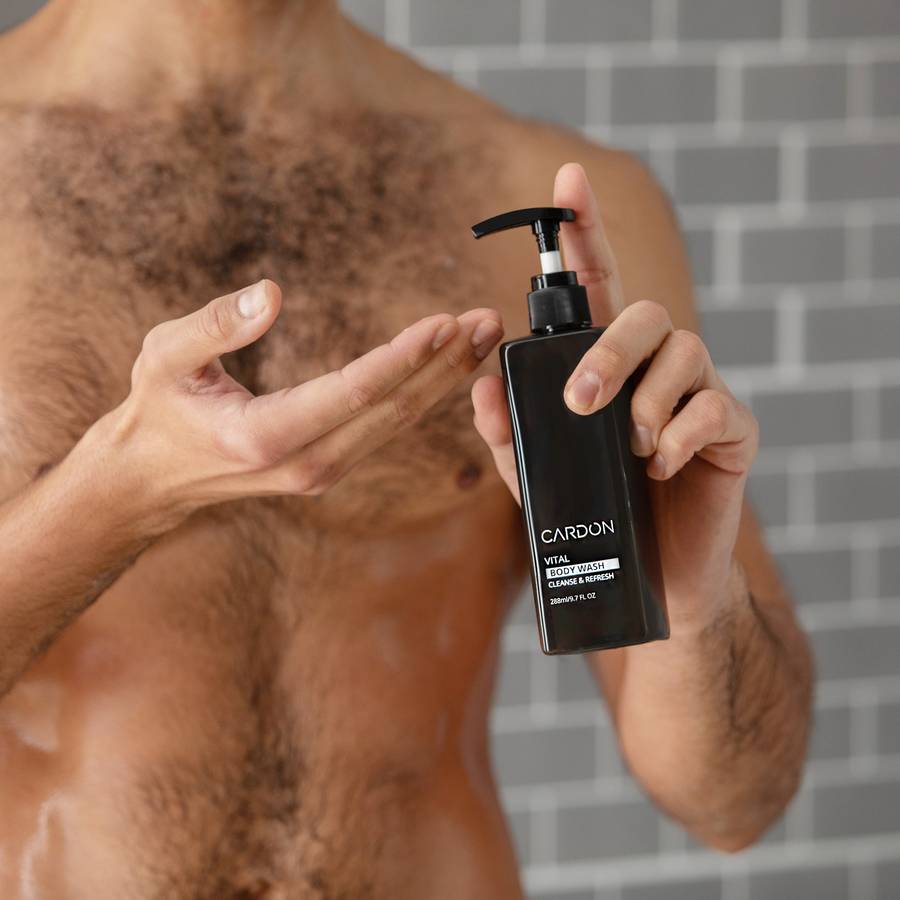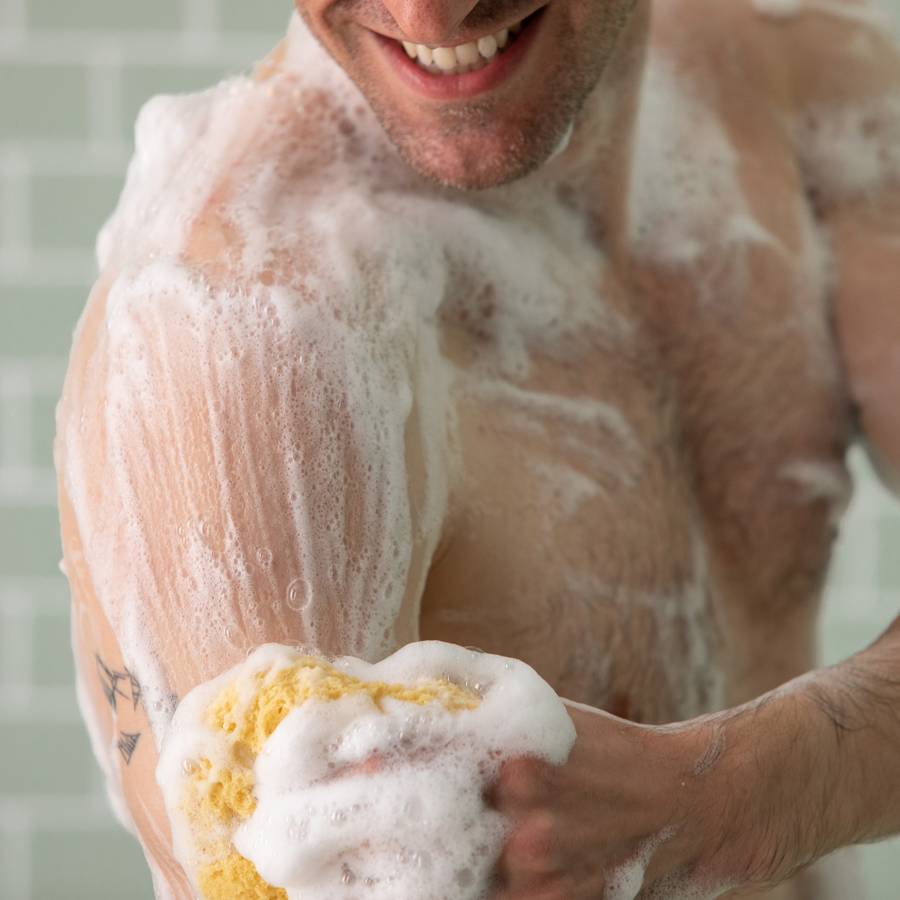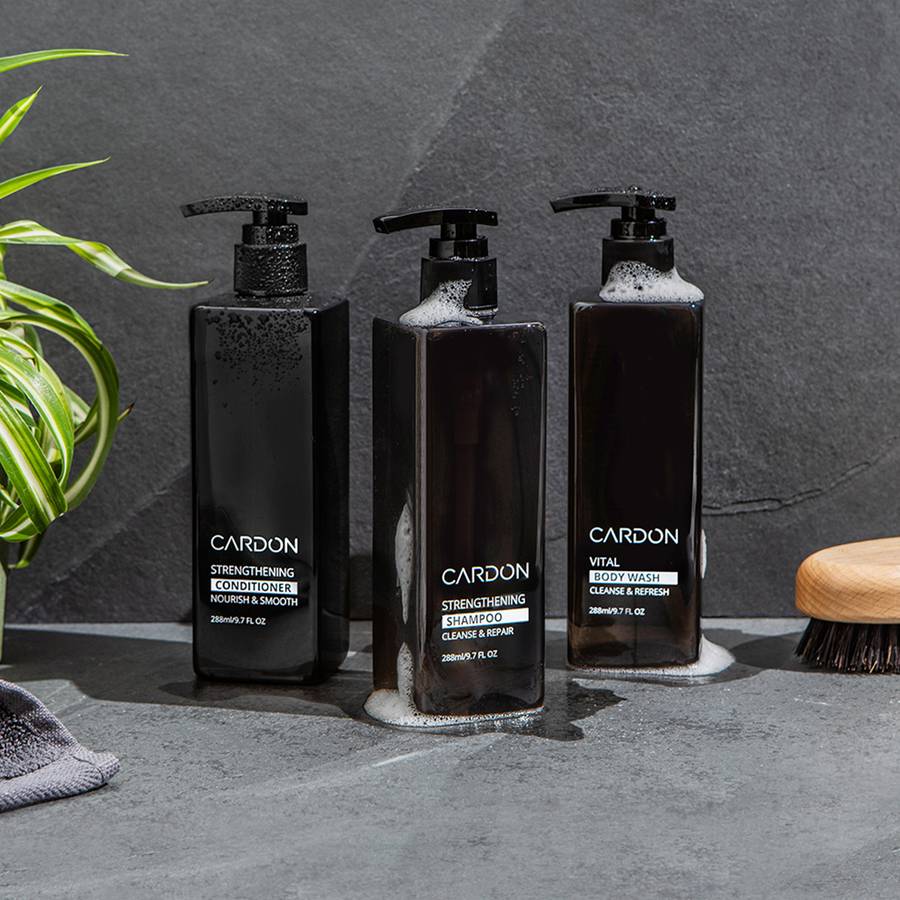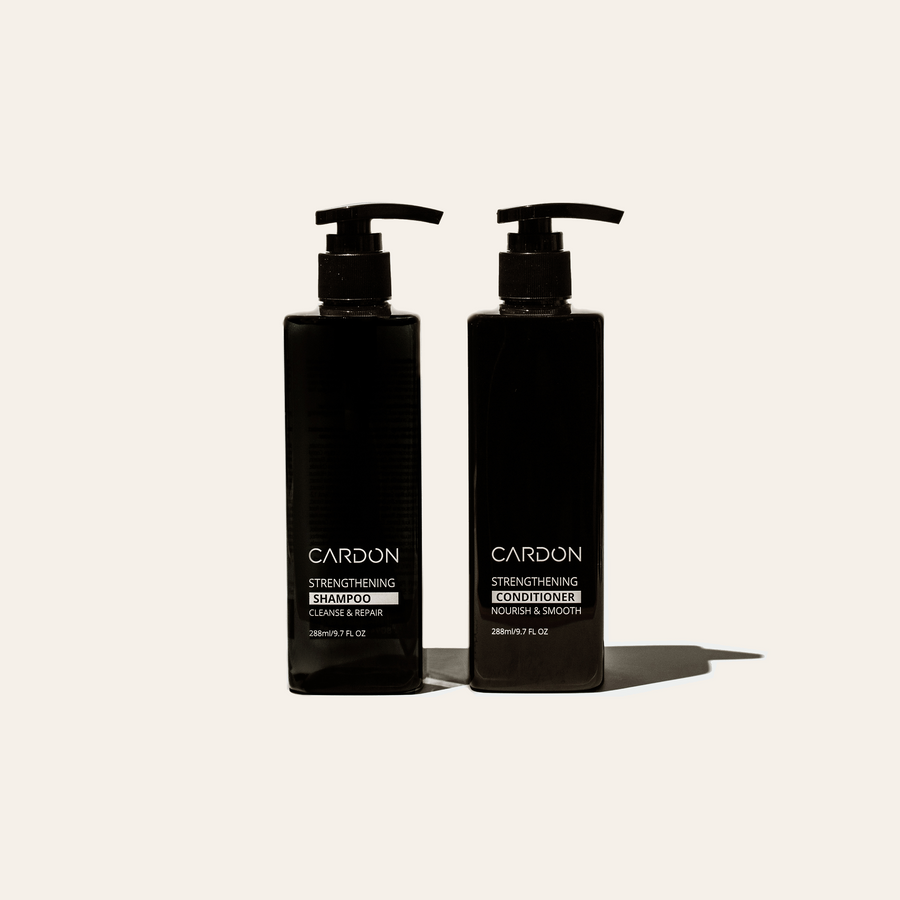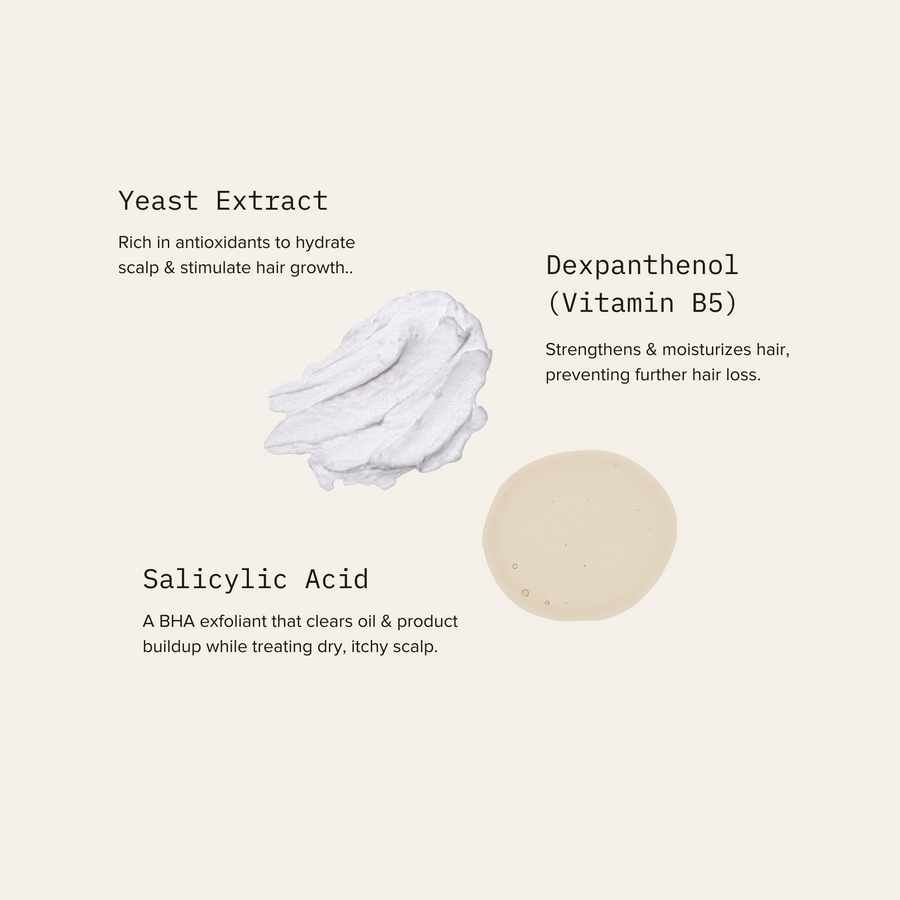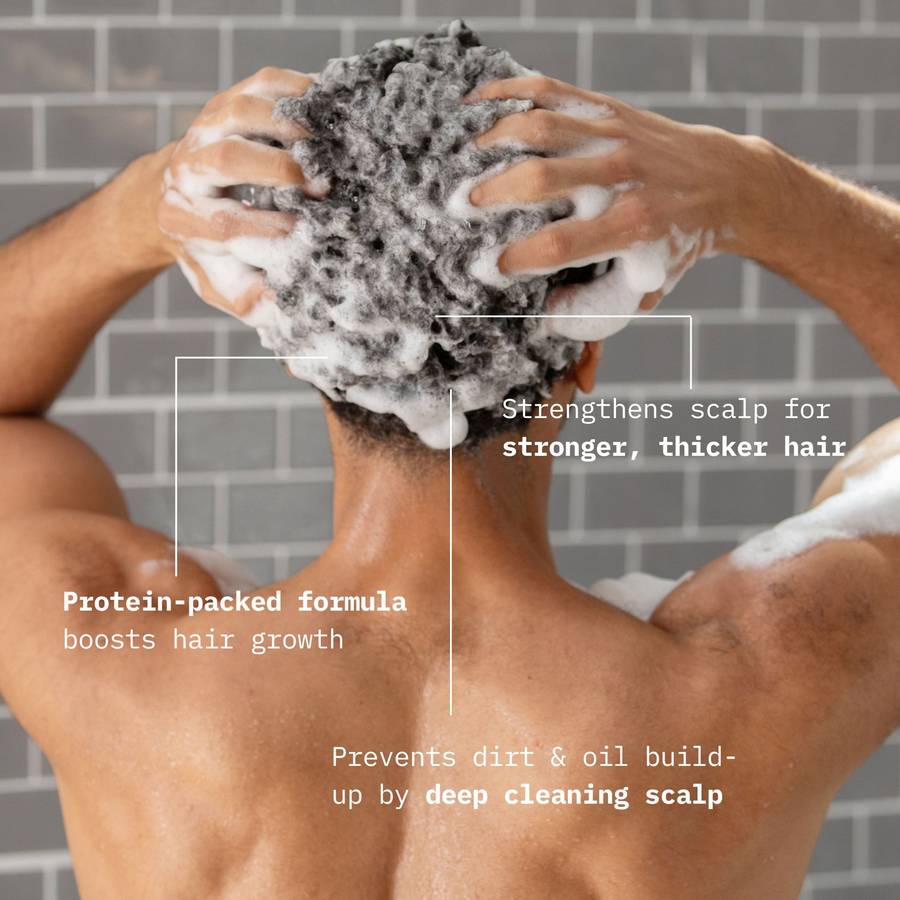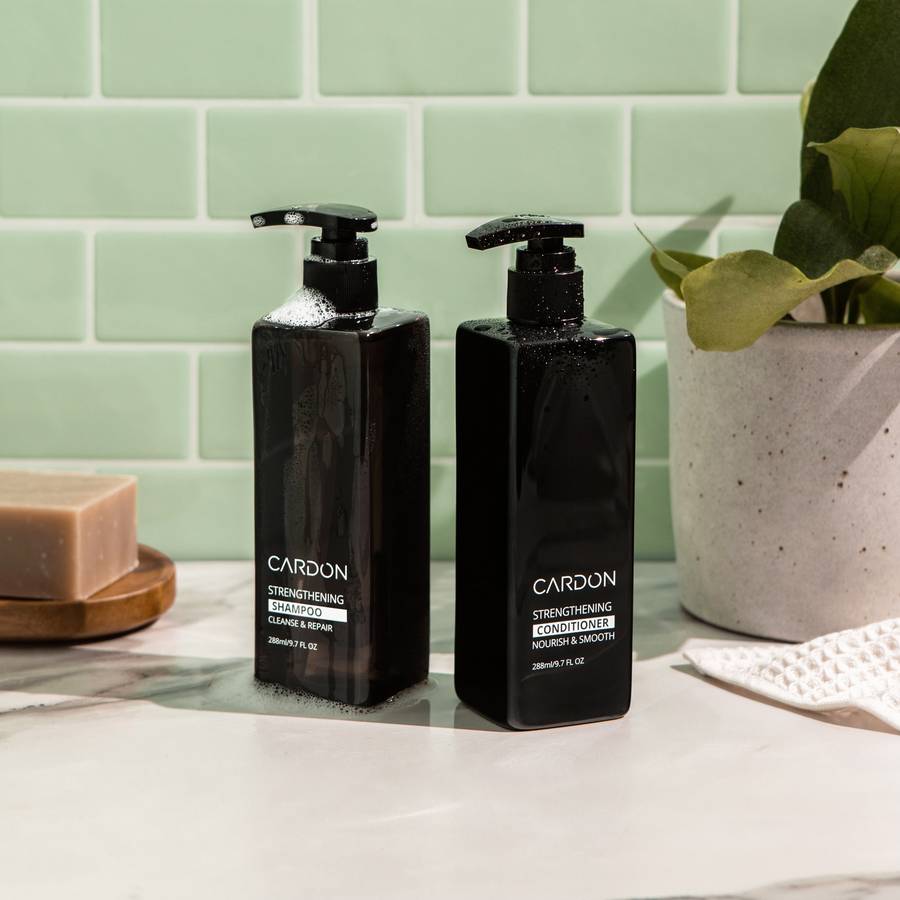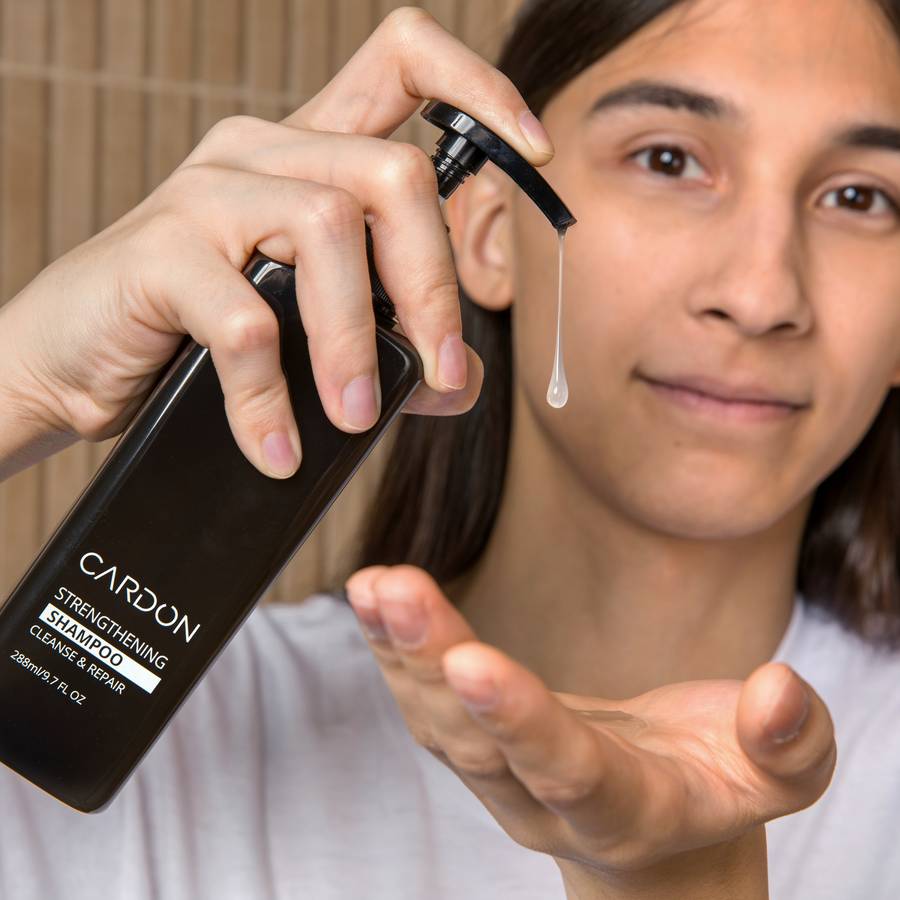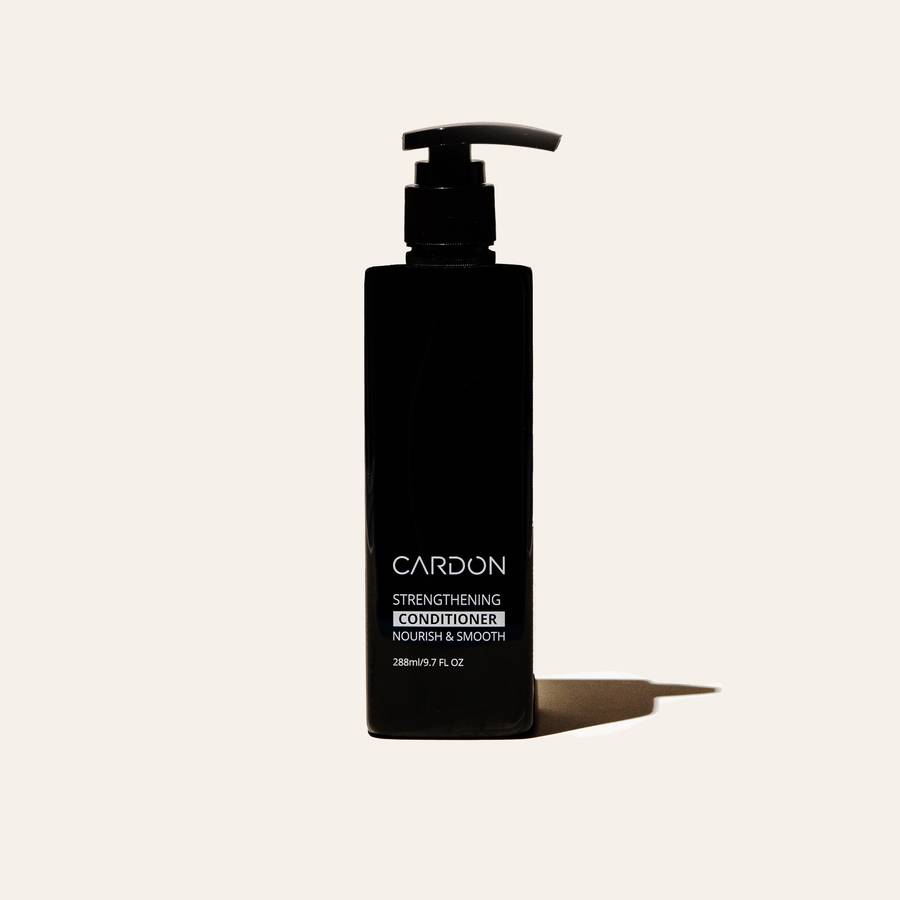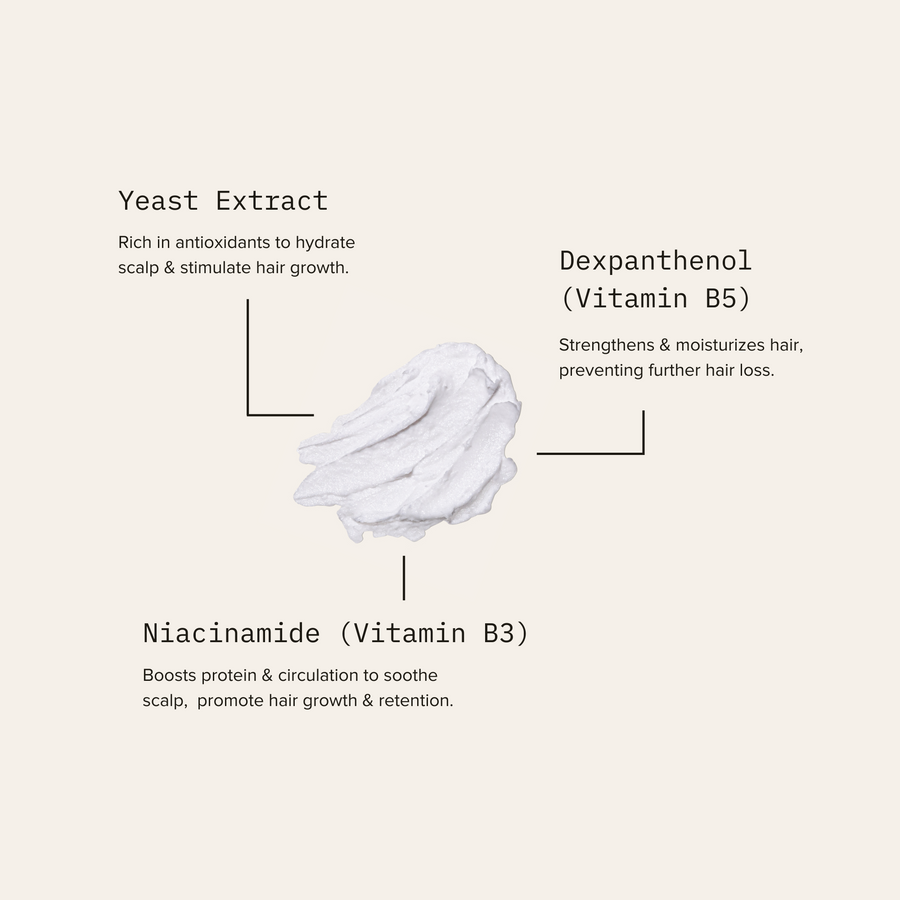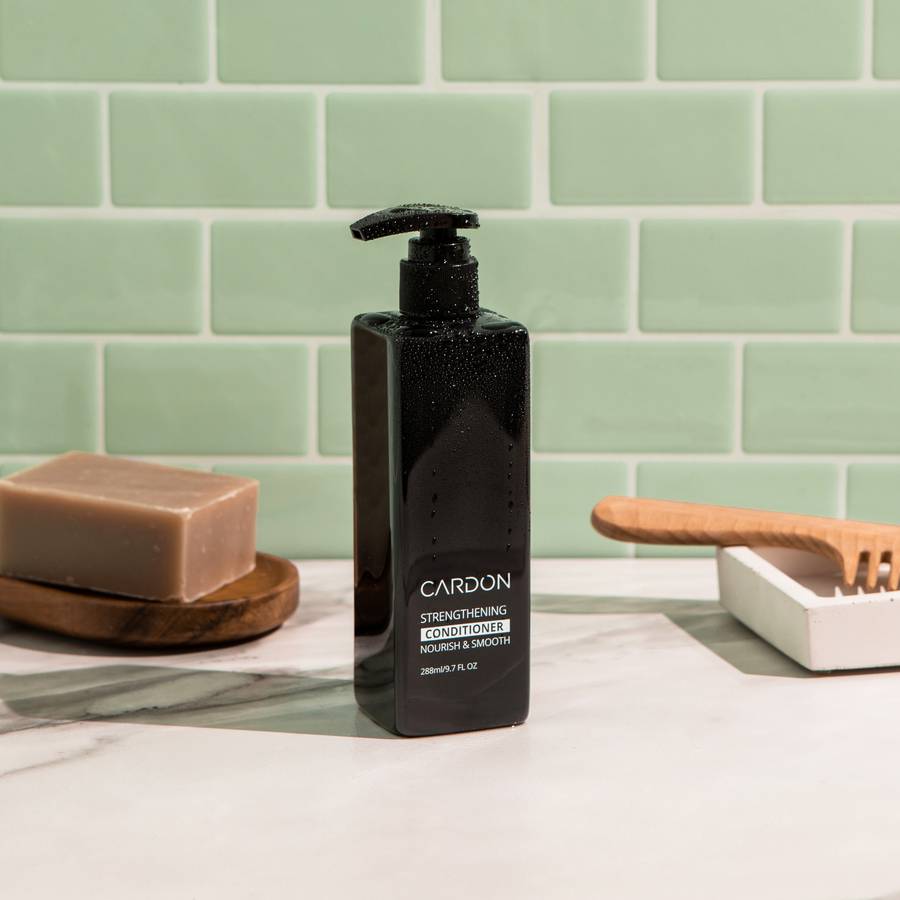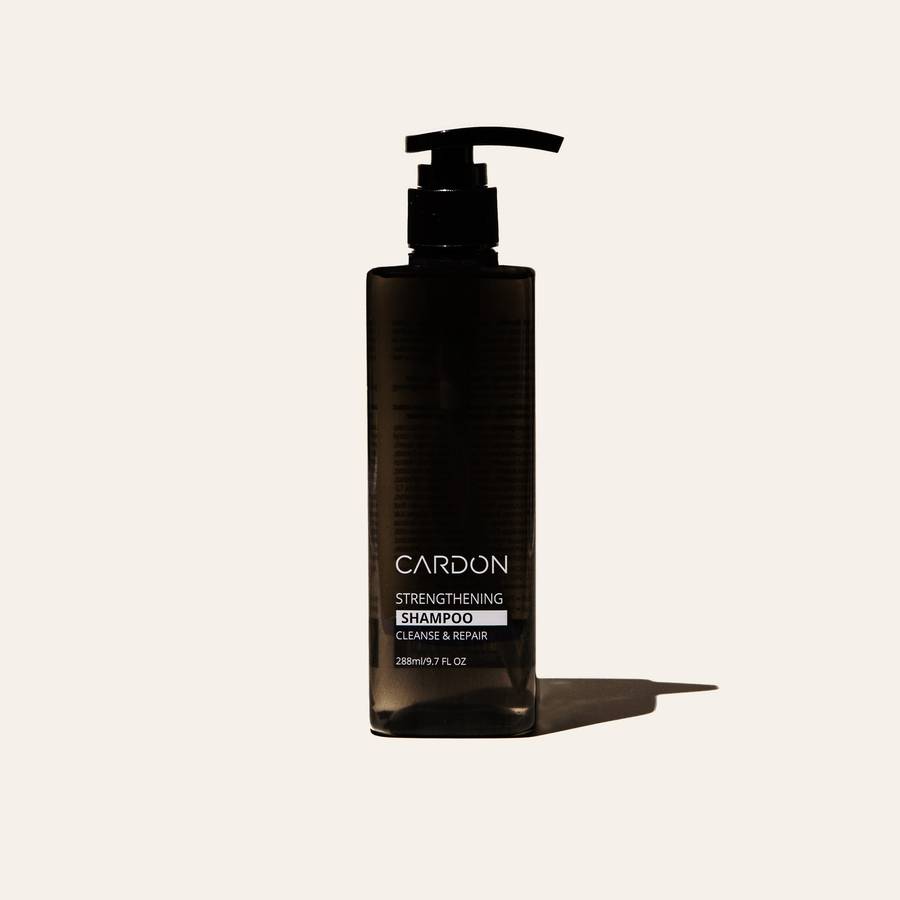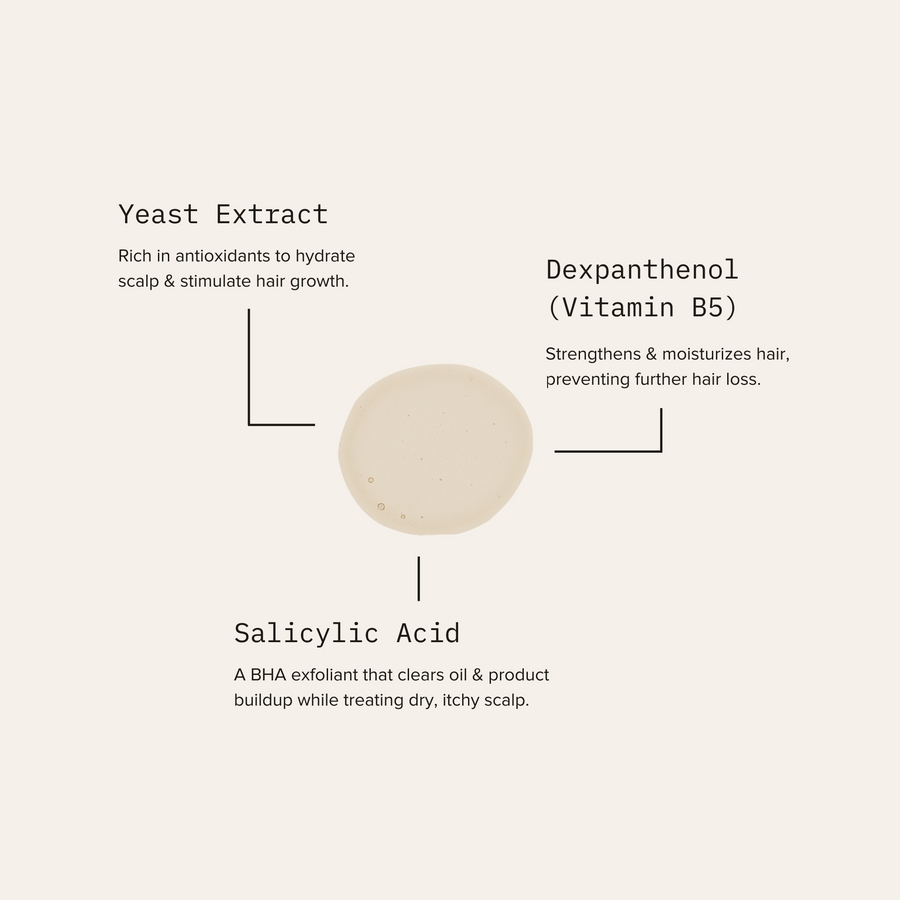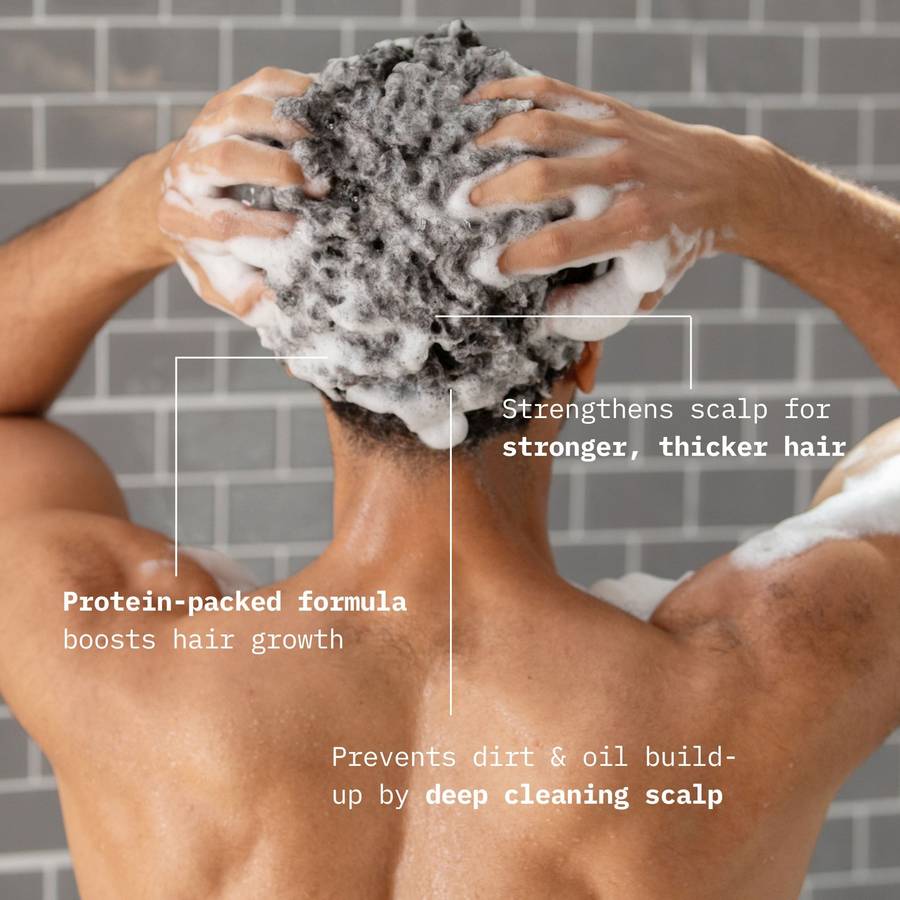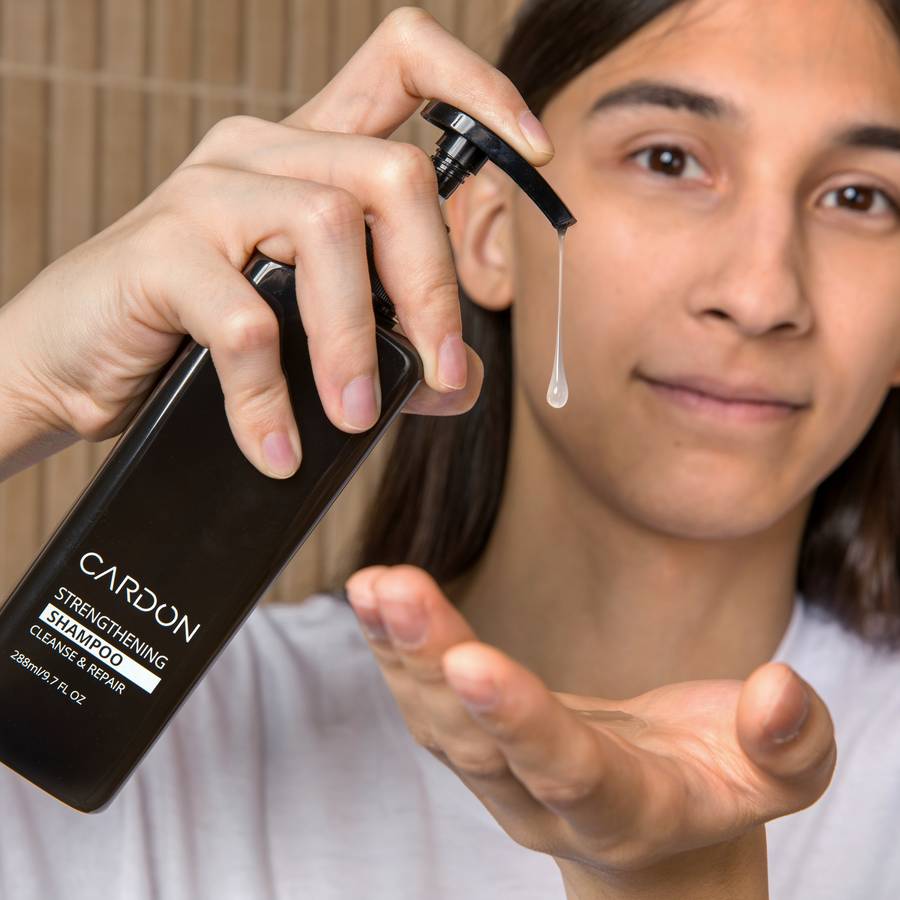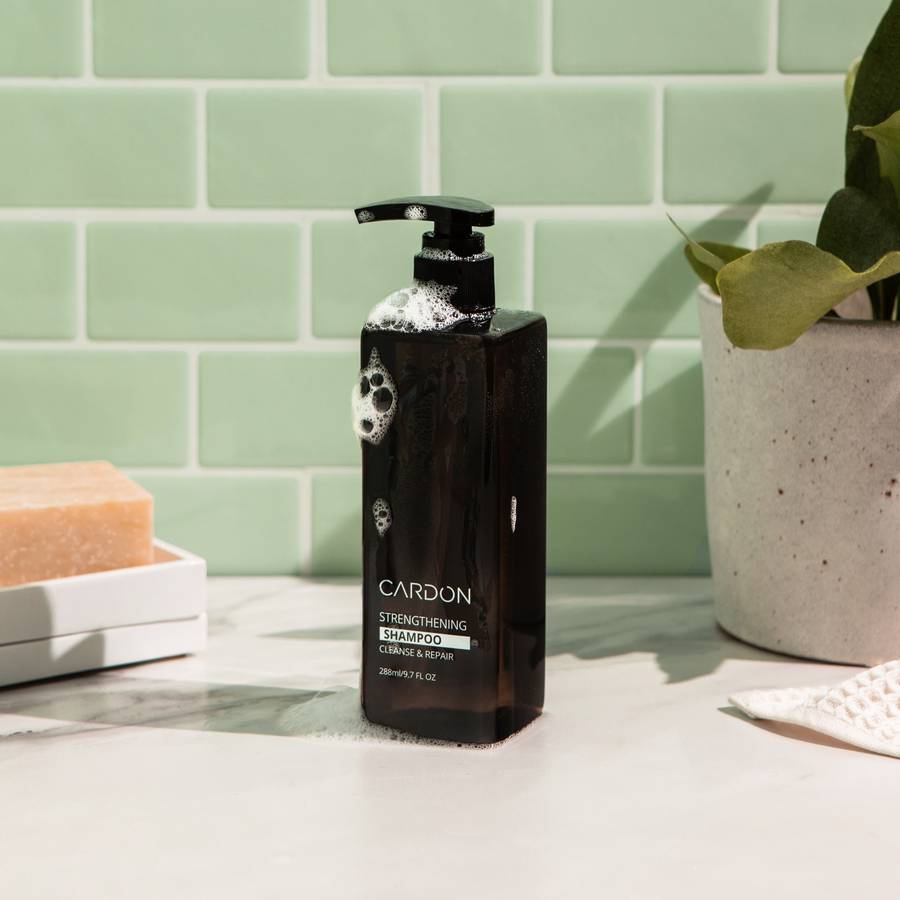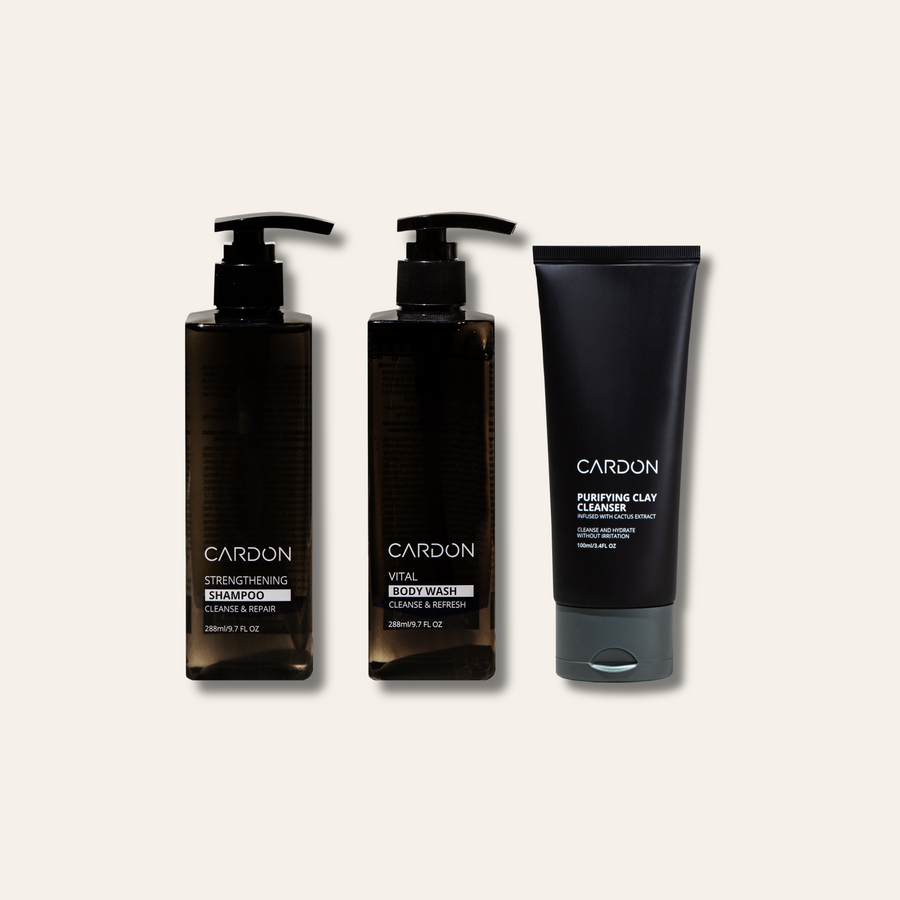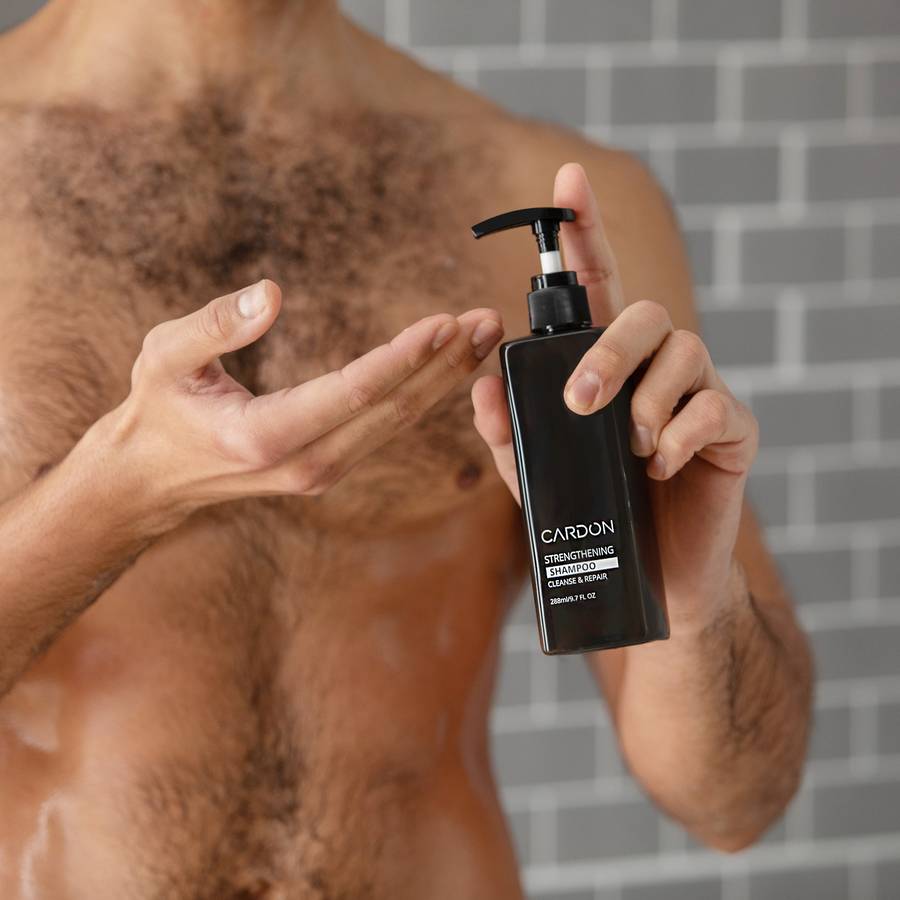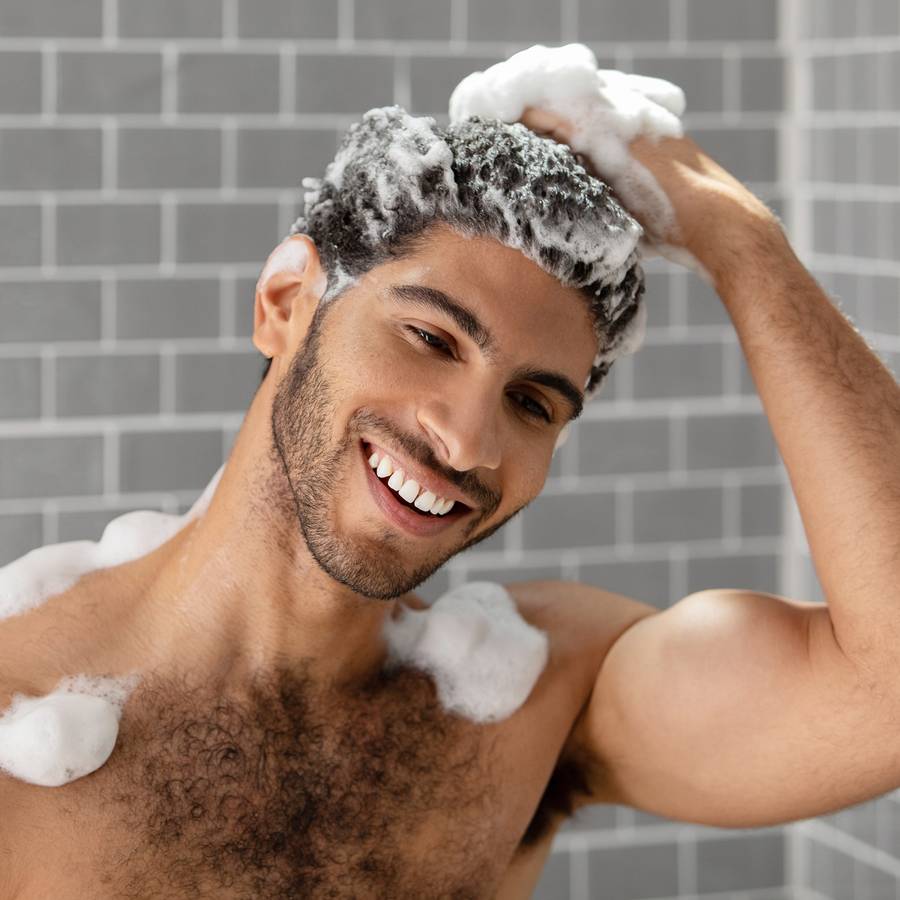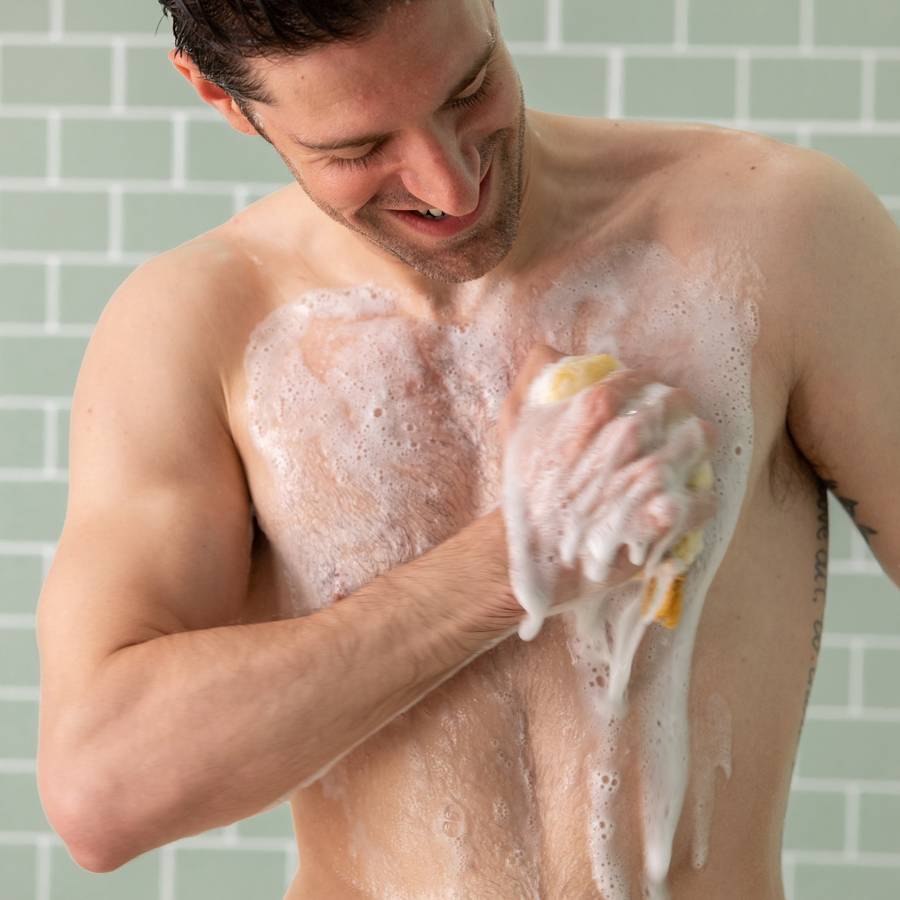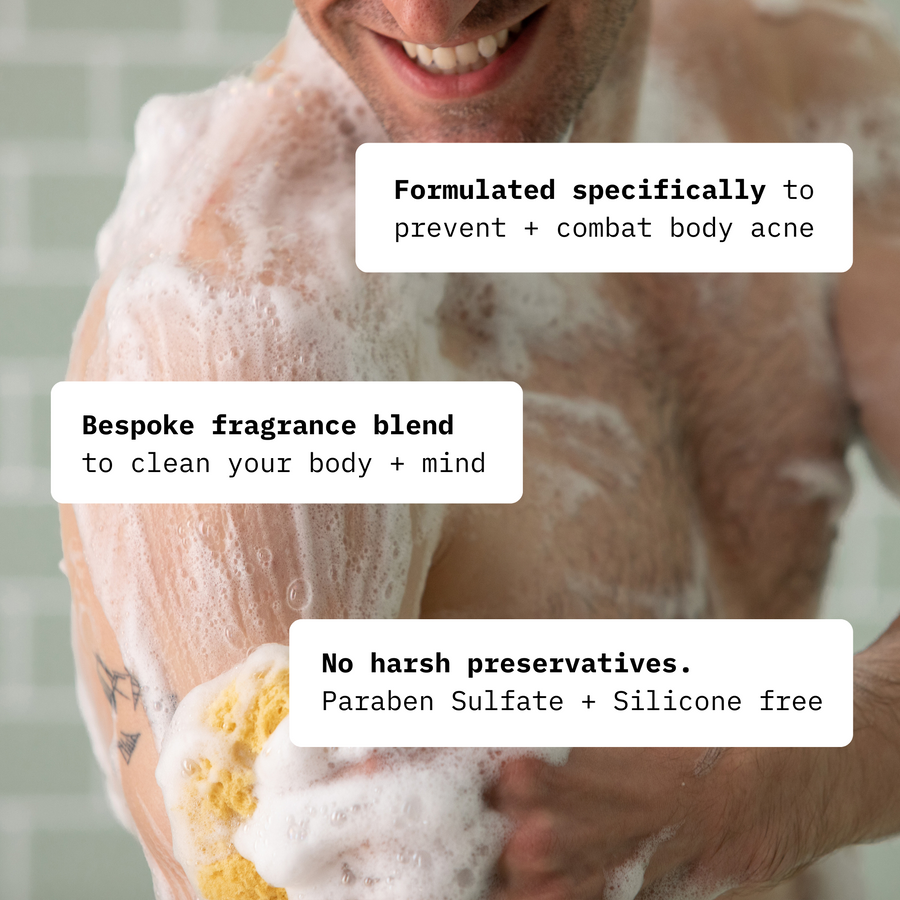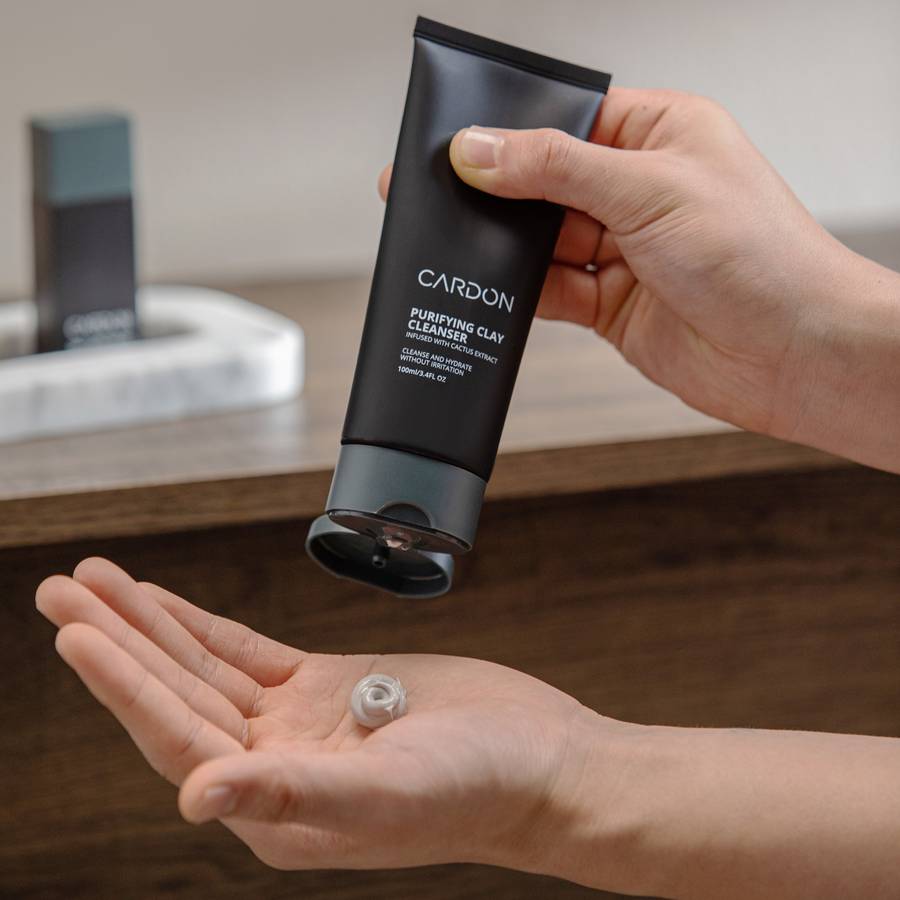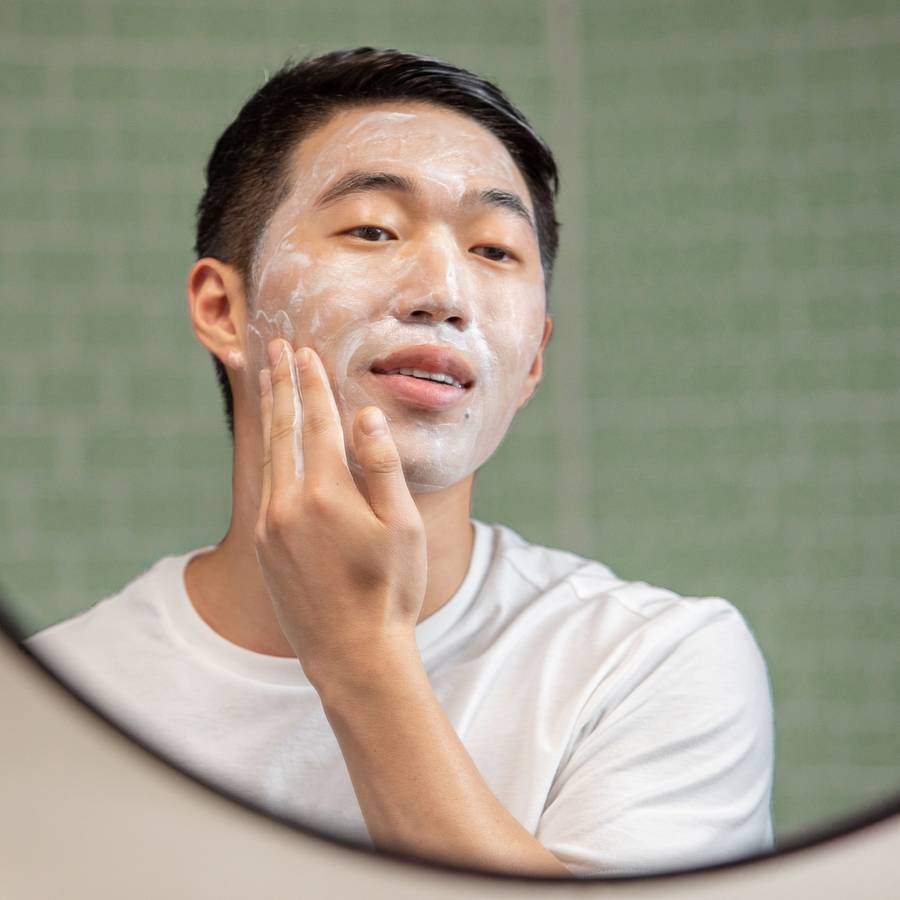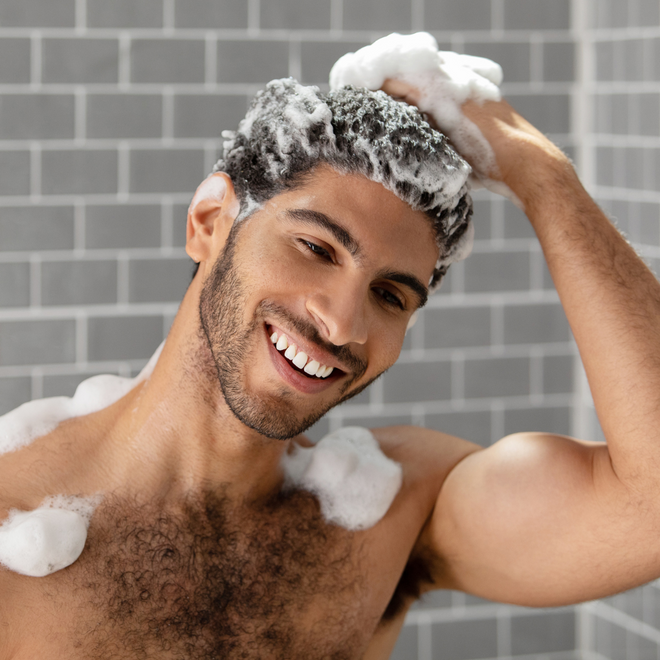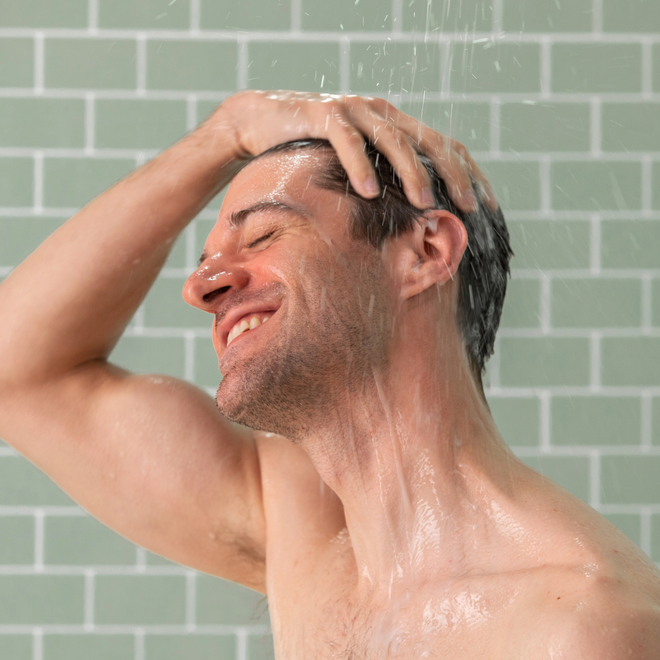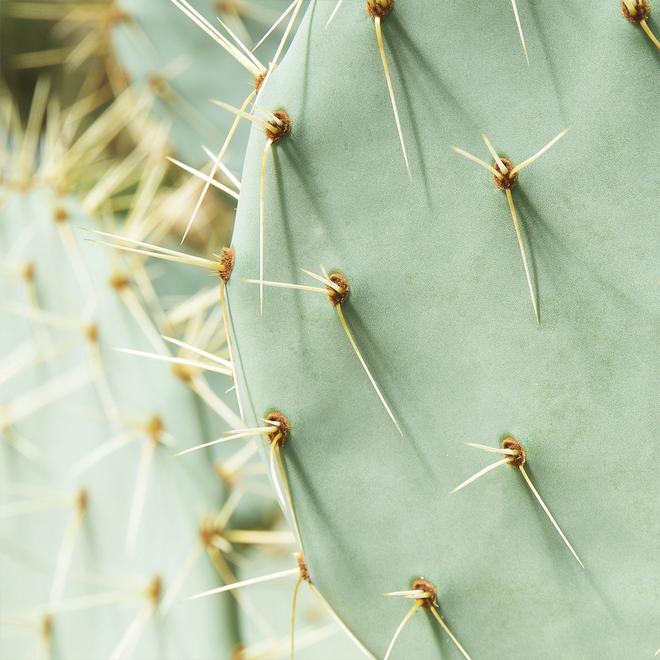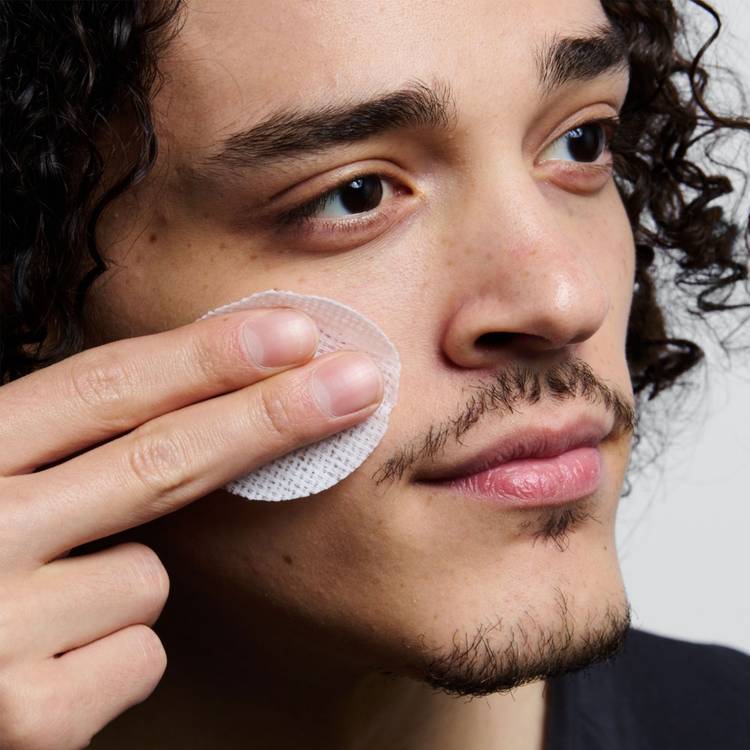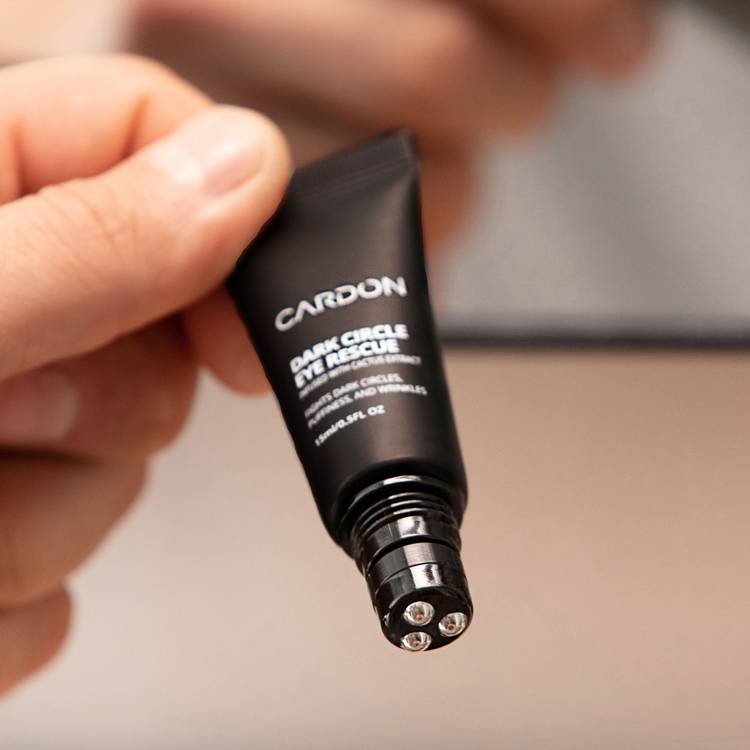How Scalp Care Can Prevent Dandruff (And Promote Hair Density)
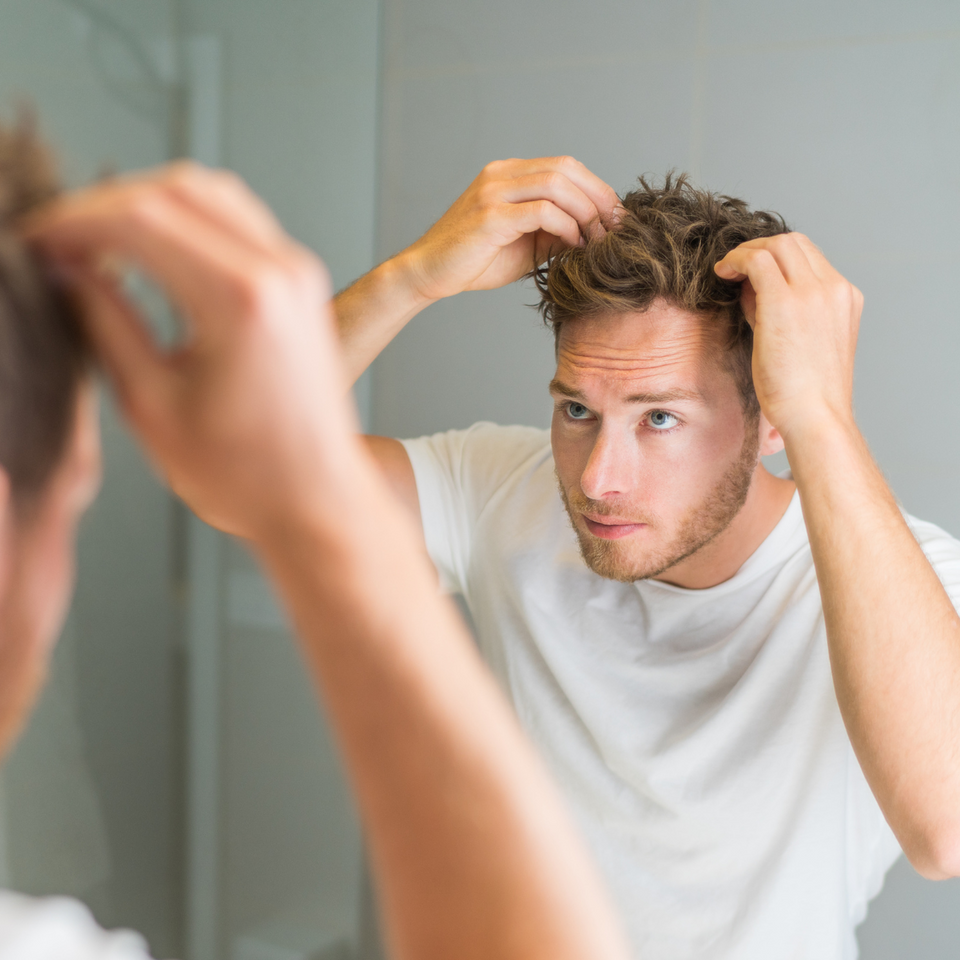
All of us, at some point in life, have needed a fast-fix dandruff remedy—a shampoo or cream with an active ingredient that kills the fungal buildup and soothes any itching or inflammation. It’s never fun, and it’s decidedly not cute either: Thank goodness for ball caps, let’s leave it at that.
As the saying goes, “the best offense is a good defense”, which is fitting when it comes to dandruff prevention and overall scalp health. If you get ahead of the problem, then you never have to treat the problem. So, while we’d happily endorse all those treatments with ingredients like pyrithione zinc and ketoconazole, we’d bigger advocates of a proactive and nourishing scalp care regimen.
In many guys’ grooming routines, scalp care is in a nebulous gray area, stuck between hair care and skin care. In truth, it’s a little bit of both those two categories. After all, the scalp is all skin, but it’s also housing all of your hair follicles. Hence, proper and consistent scalp nourishment can prevent dandruff and promote thicker, full hair growth by preserving the overall balance of things up there. While dandruff in and of itself won’t necessarily play an impact on hair health, continued inflammation and buildup at the scalp can compromise circulation and nutrient delivery to the follicles, in turn hindering your hair’s longevity.
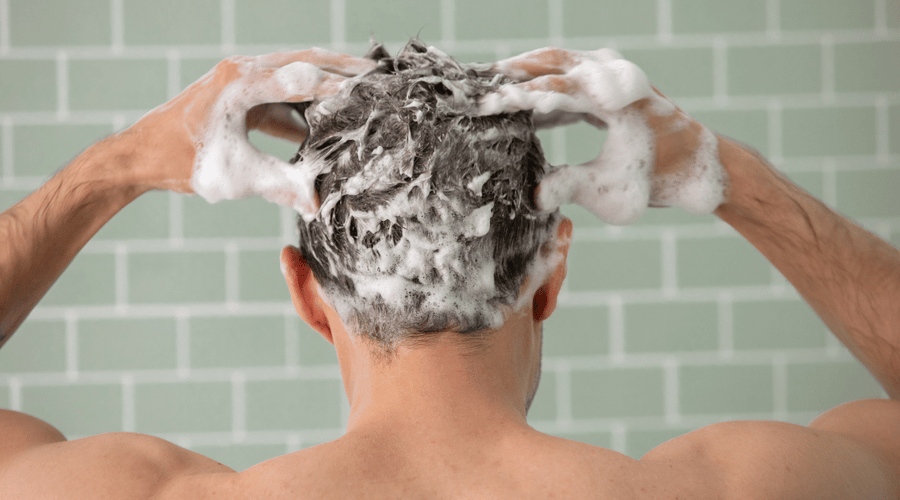
To practice your best defense against scalp issues, there are many things you can do to get ahead of any problems. So, start with the following habits and behaviors, and you may never find yourself at the drugstore searching for a fast-fix solution again.
1. Shampoo Less Frequently
While “not shampooing daily” is technically Haircare 101, some guys still like to do a daily lather. Our advice would be to monitor this process, and do your best to switch to an every-other-day wash if possible. You can make exceptions for days you build up a big sweat, but few people actually need to start from scratch every single day. While this may seem unsanitary—because why wouldn’t you need to wash your hair daily?—the truth is that most things will flush away with a rinse (so be sure to do that daily, at least), and even the most nourishing shampoo can have a drying effect on the scalp if you overuse it. The goal here isn’t to reduce your scalp oils down to zero, because doing so makes things dry, itchy, and flaky. (Strangely, you can get flakes from being too dry, but also from being too oily; the latter is usually what leads to fungal-induced dandruff.) But, on the note about “even the most nourishing shampoo…”
2. Use Moisturizing Shampoo
Of the thousands of shampoos out there, make absolutely sure that yours is a hydrating and nourishing one. The brand should advertise as much, and should be able to articulate how its chosen ingredients will nourish the scalp and hairs alike, while also providing a thorough enough cleanse. Take Cardon’s shampoo, for example: We put yeast extract in there to boost hydration levels and to fortify the scalp with antioxidants. Niacinamide also fortifies hair growth and improves circulation in the scalp, which promotes thicker and better anchored growth from the follicles. And those are just the scalp benefits…
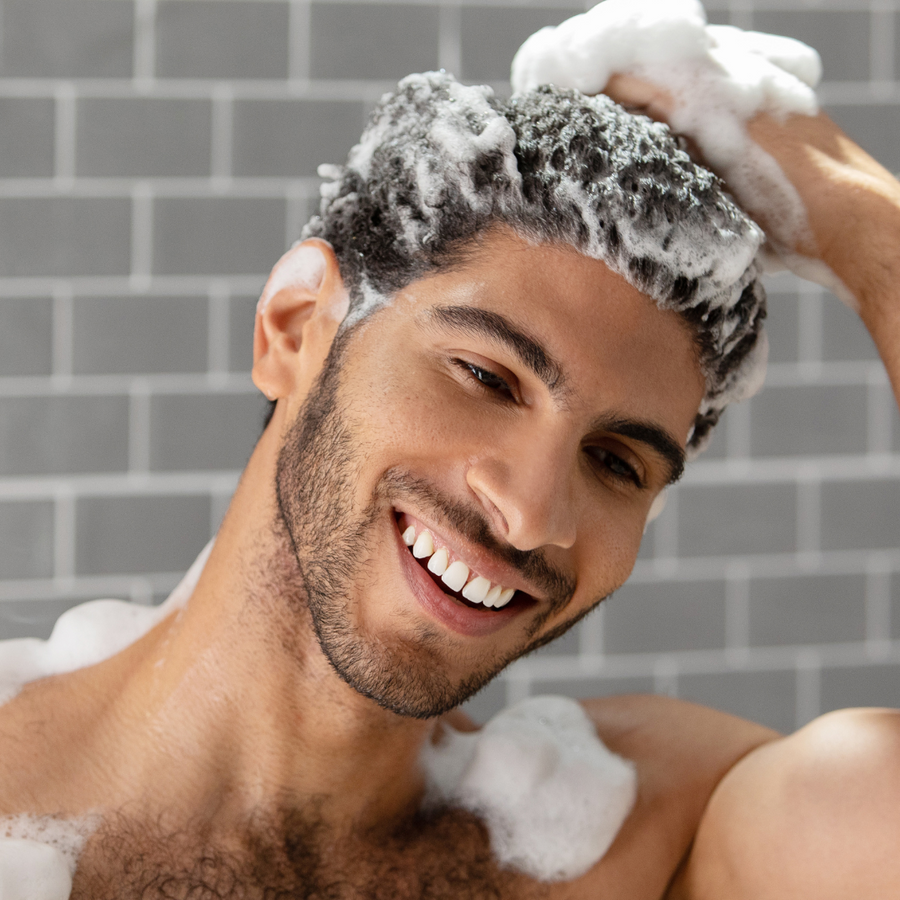

If your shampoo is too focused on its cleansing efforts—and not the least bit concerned with preserving the balance and order of things—then it’s going to do more harm than good.
3. Condition Often
Here’s one more tenet of hair and scalp care: Conditioner can rarely be overused. It restores vitality in the hair, by moisturizing each strand and smoothing out the cuticles to prevent moisture loss. And because conditioners contain conditioning ingredients (hey, it’s there in the name), they can help nourish the skin as well. Cardon’s conditioner, for example, contains those same scalp-benefiting ingredients that we deploy in the shampoo. And because you leave conditioner on the scalp and hair for a couple minutes (before rinsing away), its ingredients play a much bigger role on the long term wellness.
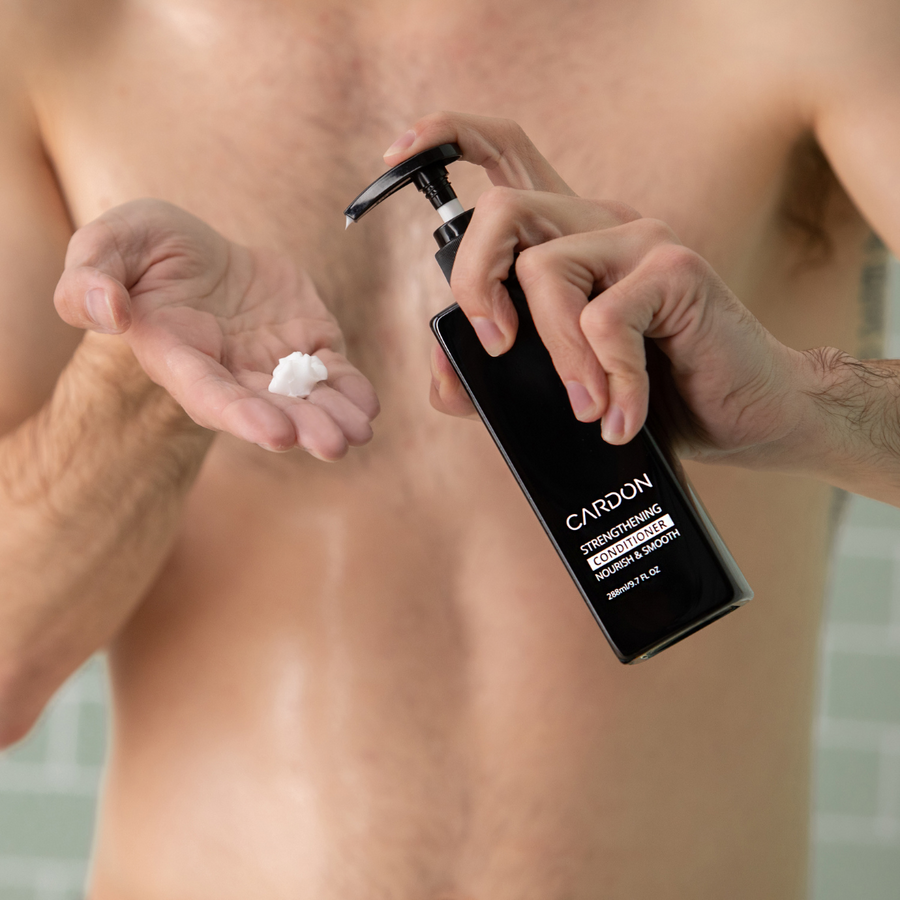

It’s still important to have a moisturizing shampoo, since you want a cleansing agent that doesn’t dehydrate. But your conditioner will do the fortification and actual nourishment. By using it daily (including on non-shampoo days), it’s like giving yourself a little scalp treatment, and it even helps rinse away excess buildup, acting like a nourishing shampoo. Don’t let it replace your shampoo, but allow your conditioner to help you on those non-wash days.
Shop the product

Hair Thickening + Strengthening Conditioner
$20.00
4. Take Shorter, Cooler Showers (and with Filtered Water, if Possible)
How water and long showers are enemies to hair and skin alike—especially if you have hard water coming from the tap. So, in addition to getting a water filter in order to remove any mineral buildup, you can also try to limit showers to five minutes, and to turn down the temps. This is hard advice for anyone who likes to turn their bathroom into a steamy sauna each day, but your scalp will be significantly better off for it, in terms of preserving hydration. Yes, it may seem counterintuitive to say “less water yields better hydration”, but remember, the hydration in question is actually the natural oils in the skin, and we all know how well oil and water interact…
5. Give Yourself a Scalp Massage
This tip is an easier pill to swallow: By giving yourself a scalp massage each day—even as your applying shampoo or conditioner— you boost circulation in the area and in turn improve the nutrient delivery to the follicles and skin cells. Doing so in the shower can also help exfoliate any dead skin, preventing those flakes from ending up on your shoulder during the work day. But moreover, this circulation boost is one of the best ways to retain hair in the long haul, due to more fortified growth from those nourished follicles.
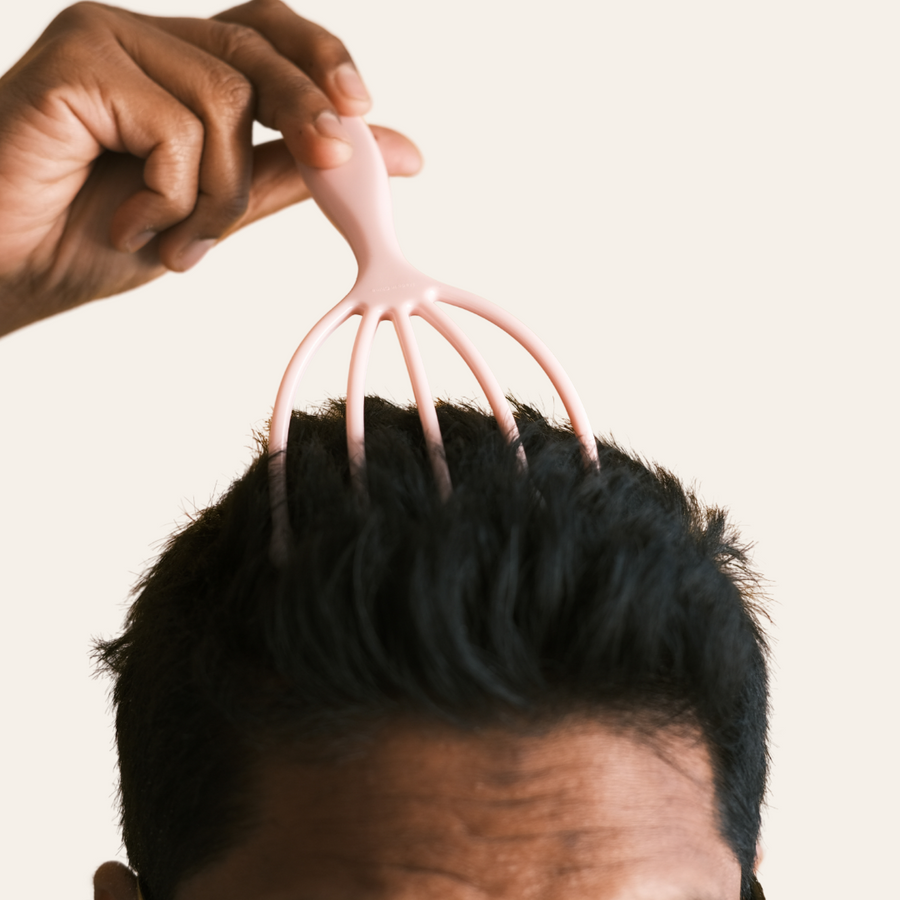

6. Bonus Tip: How to Prevent Beard Dandruff
If you’ve ever grown out your facial hair (even a month’s worth), then you might have also experienced itching and flaking beneath the scruff. Beard dandruff is very similar to scalp dandruff, and is usually caused by dehydration due to a lack of nourishment. The best way to remedy this—aside from taking colder, shorter showers—is to add a beard oil to your regimen, since this oil can slip past your whiskers and easily moisturize the skin beneath the beard. (It will also coat the beard hairs as well, to help soften and strengthen them, too.) We’d also suggest getting a good beard brush to scrub away dead cells at the end of each day.
Shop the collection
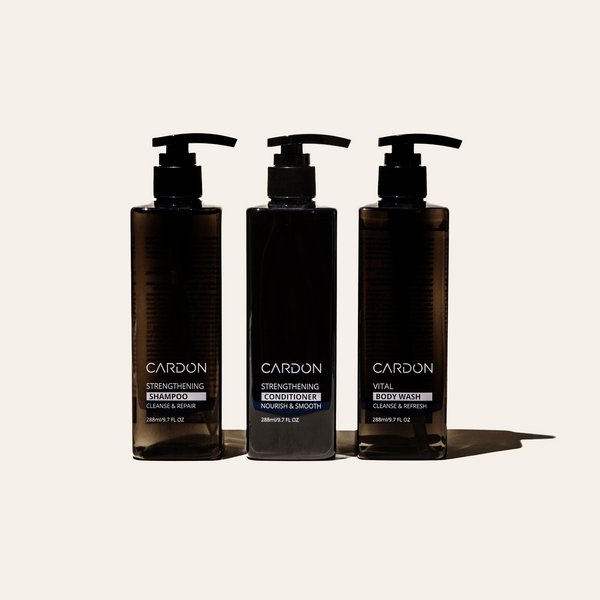
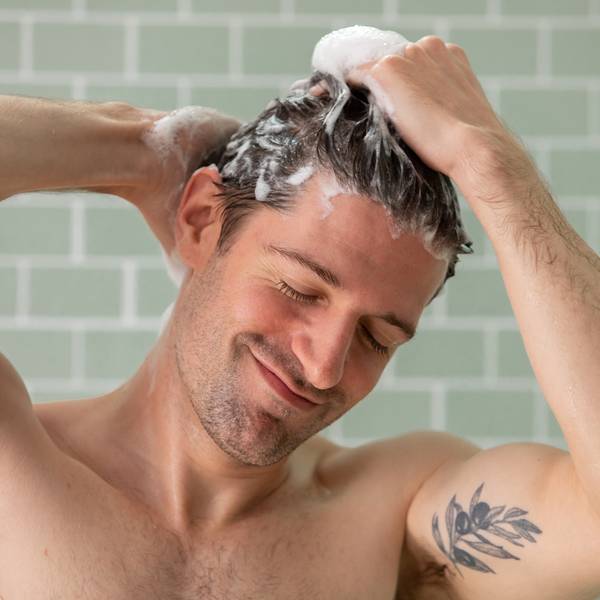
Hair + Body Shower Set
good for:
New + Improved: Same thickening formula now with biotin! The Hair + Body Shower Set has everything you need for an invigorating showertime routine, going beyond cleansing to strengthen, repair, and soothe your hair and skin. You—and your houseguests—will thank you for ditching the 3-in-1 for this trio.
*Vital Body Wash – winner of the 2022 GQ Grooming Awards
Includes Steps:
- 01 Hair Thickening + Strengthening Shampoo
- 02 Hair Thickening + Strengthening Conditioner
- 03 Vital Body Wash
Never go empty! Subscribe + Save 10%
Hair + Body Shower Set
good for:
New + Improved: Same thickening formula now with biotin! The Hair + Body Shower Set has everything you need for an invigorating showertime routine, going beyond cleansing to strengthen, repair, and soothe your hair and skin. You—and your houseguests—will thank you for ditching the 3-in-1 for this trio.
*Vital Body Wash – winner of the 2022 GQ Grooming Awards
Includes Steps:
- 01 Hair Thickening + Strengthening Shampoo
- 02 Hair Thickening + Strengthening Conditioner
- 03 Vital Body Wash
Never go empty! Subscribe + Save 10%
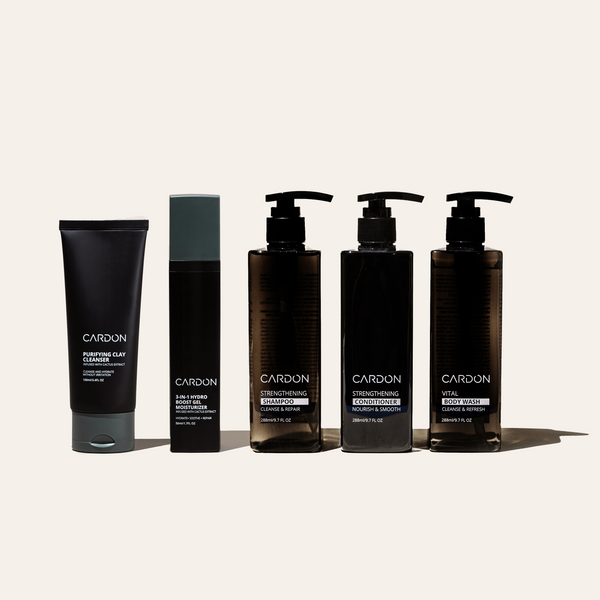
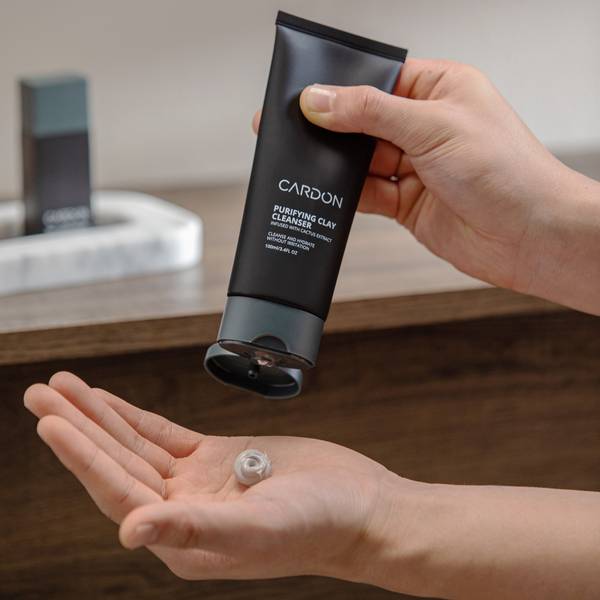
NEW
NEW
+ Hair
+ Body
Head-to-Toe Set
good for:
We've got you covered head to toe, literally. This set comes with a complete skin and hair care routine.
Includes our invigorating shampoo and conditioner to prevent hair loss, refreshing body wash to treat body acne, clay-infused face wash to deeply cleanse the face from debris, and lightweight gel moisturizer to soothe, rehydrate and repair skin while you sleep.
It's about time you treated the rest of your body as good as you treat your face.
Includes Steps:
- 01 Purifying Clay Cleanser
- 02 Hydro Boost Gel Moisturizer
- 03 Hair Thickening + Strengthening Shampoo
- 04 Hair Thickening + Strengthening Conditioner
- 05 Vital Body Wash
Never go empty! Subscribe + Save 10%
Head-to-Toe Set
good for:
We've got you covered head to toe, literally. This set comes with a complete skin and hair care routine.
Includes our invigorating shampoo and conditioner to prevent hair loss, refreshing body wash to treat body acne, clay-infused face wash to deeply cleanse the face from debris, and lightweight gel moisturizer to soothe, rehydrate and repair skin while you sleep.
It's about time you treated the rest of your body as good as you treat your face.
Includes Steps:
- 01 Purifying Clay Cleanser
- 02 Hydro Boost Gel Moisturizer
- 03 Hair Thickening + Strengthening Shampoo
- 04 Hair Thickening + Strengthening Conditioner
- 05 Vital Body Wash
Never go empty! Subscribe + Save 10%
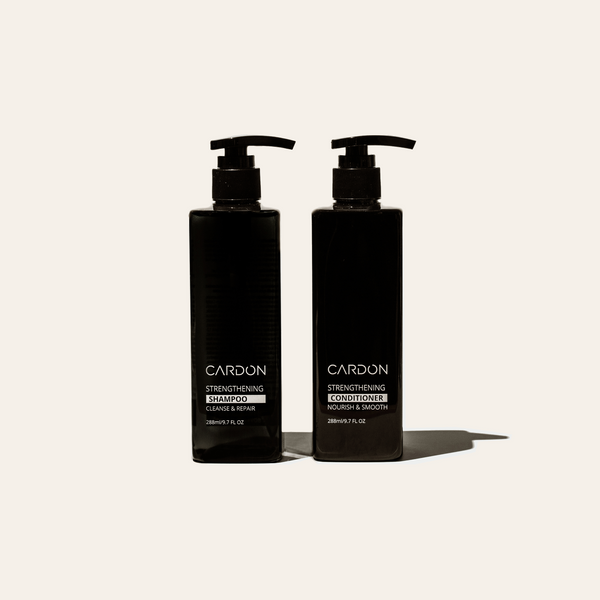
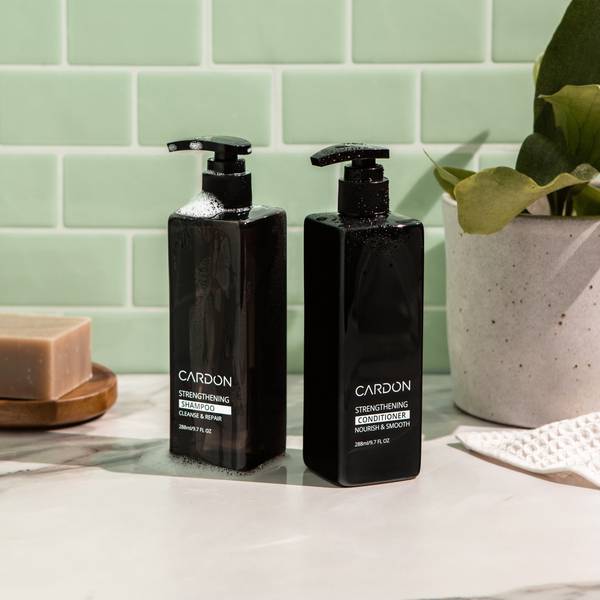
Hair Loss
Healthy Hair Duo
good for:
New + Improved: Same thickening formula now with biotin! Teamwork makes your hair dreams work.
Our highly-rated Hair Thickening + Strengthening Shampoo and Conditioner teams up to get to the root of hair loss, strengthening and nourishing hair starting right at the scalp. Achieve thicker, healthier follicles with the help of our protein and vitamin-packed formula.
Includes Steps:
- 01 Hair Thickening + Strengthening Shampoo
- 02 Hair Thickening + Strengthening Conditioner
Never go empty! Subscribe + Save 10%
Healthy Hair Duo
good for:
New + Improved: Same thickening formula now with biotin! Teamwork makes your hair dreams work.
Our highly-rated Hair Thickening + Strengthening Shampoo and Conditioner teams up to get to the root of hair loss, strengthening and nourishing hair starting right at the scalp. Achieve thicker, healthier follicles with the help of our protein and vitamin-packed formula.
Includes Steps:
- 01 Hair Thickening + Strengthening Shampoo
- 02 Hair Thickening + Strengthening Conditioner
Never go empty! Subscribe + Save 10%
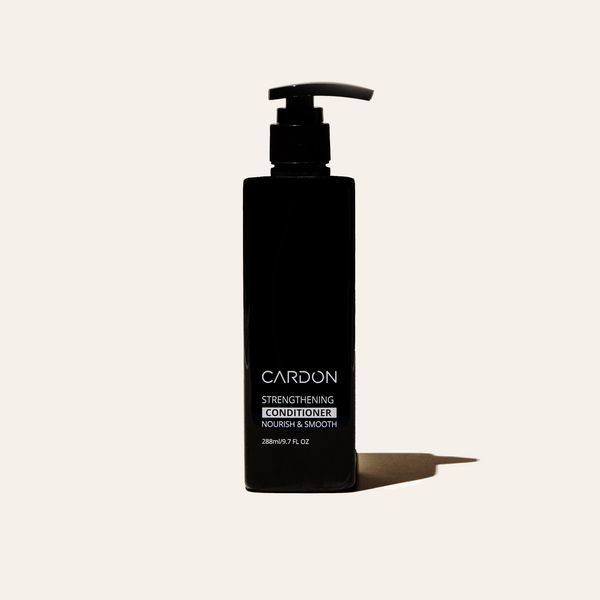
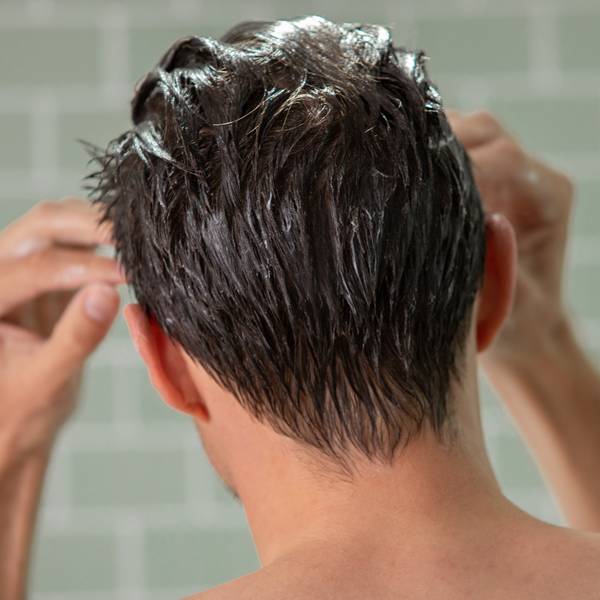
Hair Loss
Hair Thickening + Strengthening Conditioner
good for:
New + Improved: Same thickening formula now with biotin! Finally, a conditioner that doesn’t just soothe—but strengthens, too.
Our Strengthening Conditioner uses Niacinamide and Yeast Extract to get to the root of hair loss issues, nourishing the hair starting right at the scalp for stronger hair that’s smooth as silk.
“A perfect compliment to the shampoo. Adds amazing hydration to the hair, leaving it soft (even with hard water)! A nice, but not overpowering, menthol scent.” - Steve C.
Hair Thickening + Strengthening Conditioner
good for:
New + Improved: Same thickening formula now with biotin! Finally, a conditioner that doesn’t just soothe—but strengthens, too.
Our Strengthening Conditioner uses Niacinamide and Yeast Extract to get to the root of hair loss issues, nourishing the hair starting right at the scalp for stronger hair that’s smooth as silk.
“A perfect compliment to the shampoo. Adds amazing hydration to the hair, leaving it soft (even with hard water)! A nice, but not overpowering, menthol scent.” - Steve C.
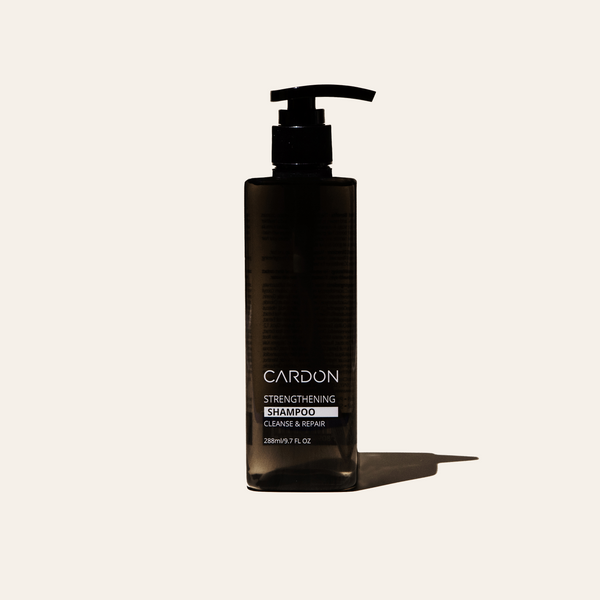
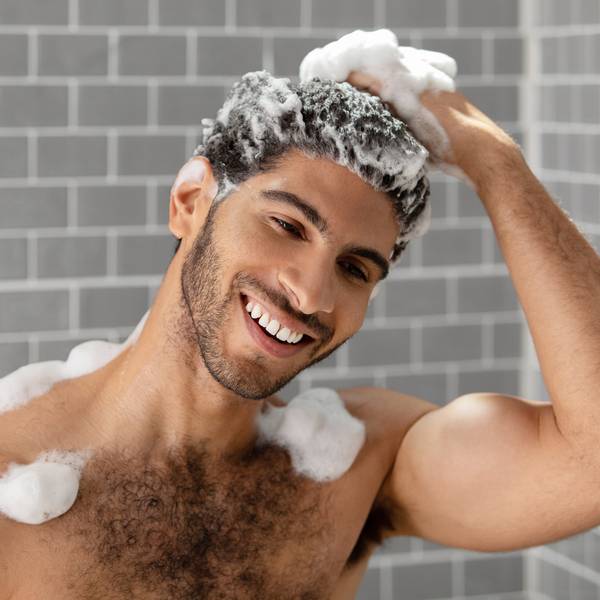
Hair Thickening + Strengthening Shampoo
good for:
New + Improved: Same thickening formula now with biotin! Stop hair loss—from receding hairlines to thinning hair—with the first step in your shower routine.
Our protein-packed Hair Thickening + Strengthening Shampoo uses niacinamide, vitamin B5, and yeast extract to restore hair follicles while protecting the scalp and reducing flakiness, too. The result? Thicker, stronger hair that’s here to stay.
“A true example of less is more. This shampoo is perfect. Leaves my hair feeling and looking healthy and thick and does not irritate my sensitive skin. A must add to my Cardon skincare regimen.” - David N.
Hair Thickening + Strengthening Shampoo
good for:
New + Improved: Same thickening formula now with biotin! Stop hair loss—from receding hairlines to thinning hair—with the first step in your shower routine.
Our protein-packed Hair Thickening + Strengthening Shampoo uses niacinamide, vitamin B5, and yeast extract to restore hair follicles while protecting the scalp and reducing flakiness, too. The result? Thicker, stronger hair that’s here to stay.
“A true example of less is more. This shampoo is perfect. Leaves my hair feeling and looking healthy and thick and does not irritate my sensitive skin. A must add to my Cardon skincare regimen.” - David N.
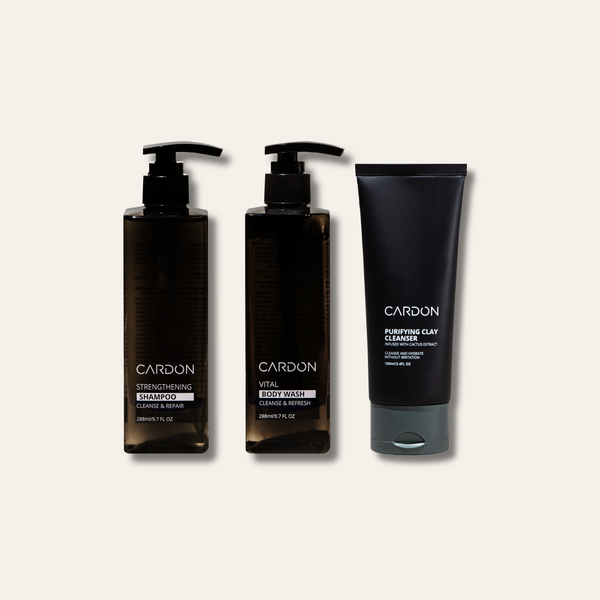
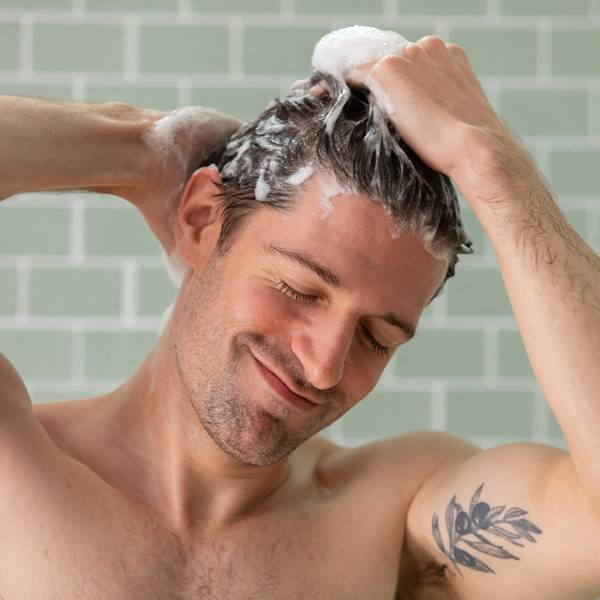
NEW
NEW
Cleanse + Refresh Set
good for:
Hit refresh! The Cleanse + Refresh Set gives you the ultimate cleanse from head to toe with highly-effective skincare-grade formulas. Strengthening Shampoo boosts hair volume, Vital Body Wash fights dryness and breakouts, and Purifying Clay Cleanser keeps your skin clear and balanced. It's the perfect set for a fresh, confident look every day!
Pro tip: Use Purifying Clay Cleanser as a spot treatment for pimples or pore-clearing clay mask. Apply to the affected area or the full face and rinse off after 10 minutes.
Includes Steps:
- 01 Purifying Clay Cleanser
- 02 Hair Thickening + Strengthening Shampoo
- 03 Vital Body Wash
Never go empty! Subscribe + Save 10%
Cleanse + Refresh Set
good for:
Hit refresh! The Cleanse + Refresh Set gives you the ultimate cleanse from head to toe with highly-effective skincare-grade formulas. Strengthening Shampoo boosts hair volume, Vital Body Wash fights dryness and breakouts, and Purifying Clay Cleanser keeps your skin clear and balanced. It's the perfect set for a fresh, confident look every day!
Pro tip: Use Purifying Clay Cleanser as a spot treatment for pimples or pore-clearing clay mask. Apply to the affected area or the full face and rinse off after 10 minutes.
Includes Steps:
- 01 Purifying Clay Cleanser
- 02 Hair Thickening + Strengthening Shampoo
- 03 Vital Body Wash
Never go empty! Subscribe + Save 10%
Cardon Products Are
Easy to Use
We never create two products when we can achieve the same results with one. Cardon products are designed to be easy to use every day.
Backed By Korean Innovation
Korean R&D is two decades ahead of the rest of the world. Cardon products use the highest quality, most effective ingredients out there.
Non-Toxic
Finally, an ingredient label you can feel good about. Every ingredient in Cardon products is good for your skin, and easy on the mind.


